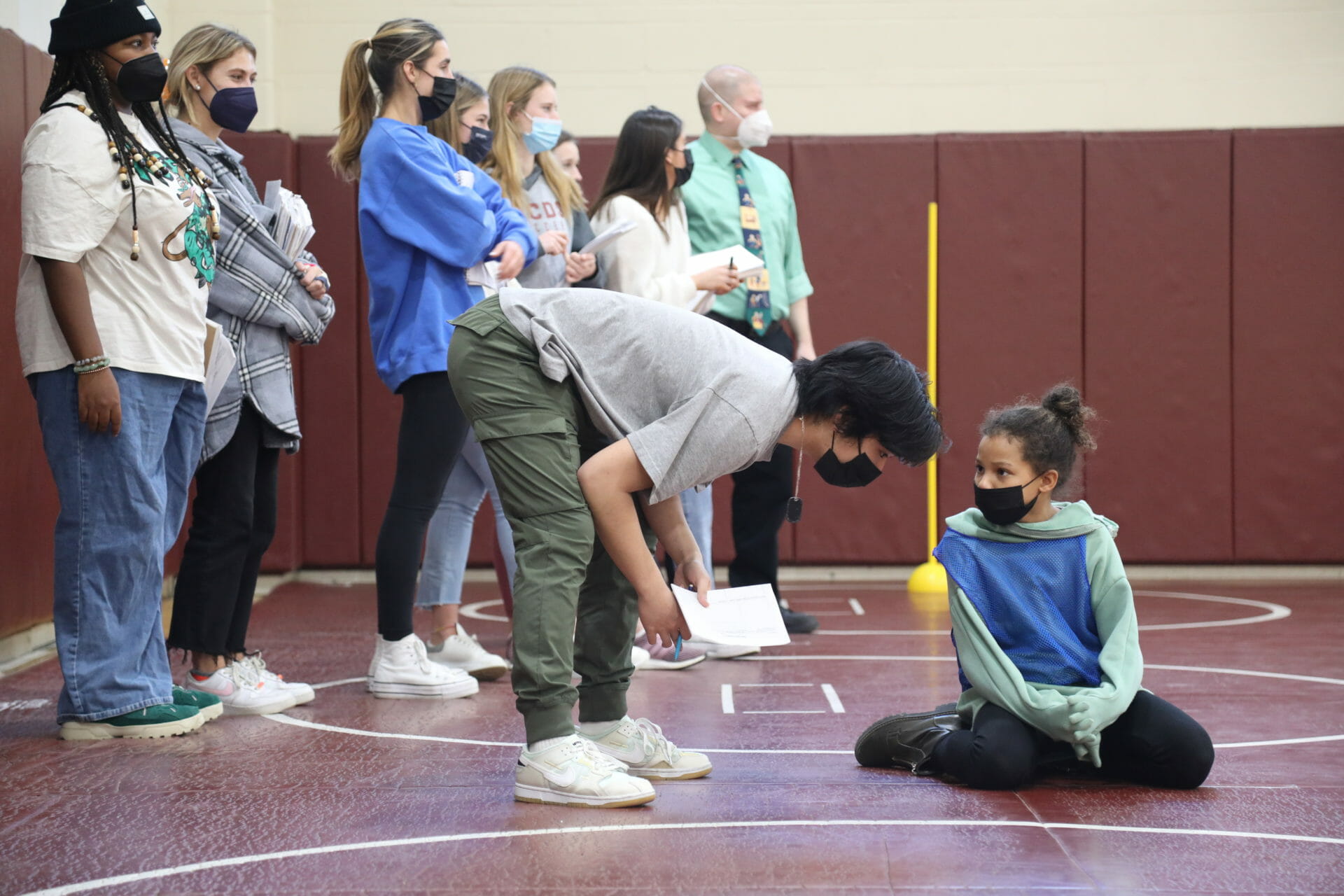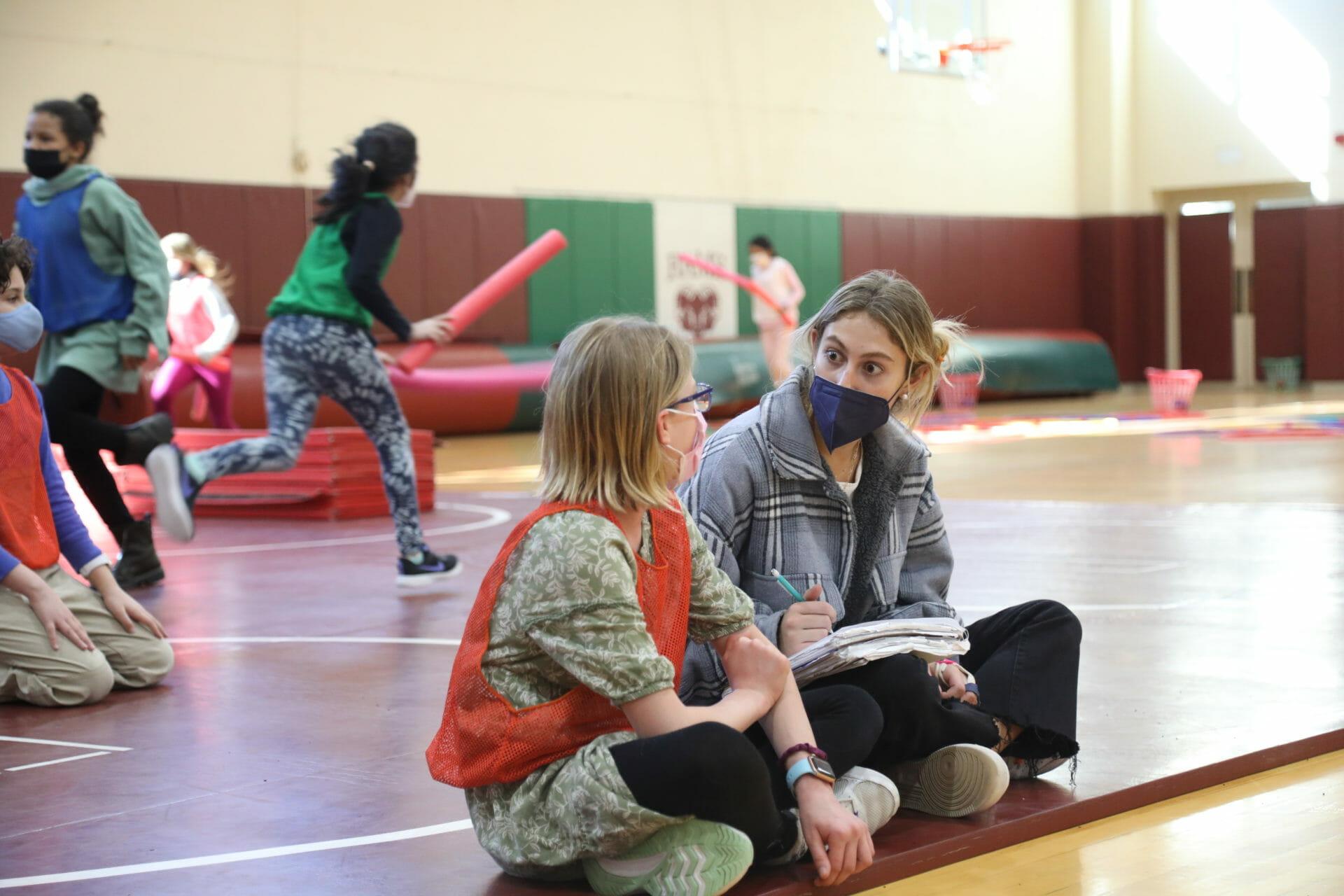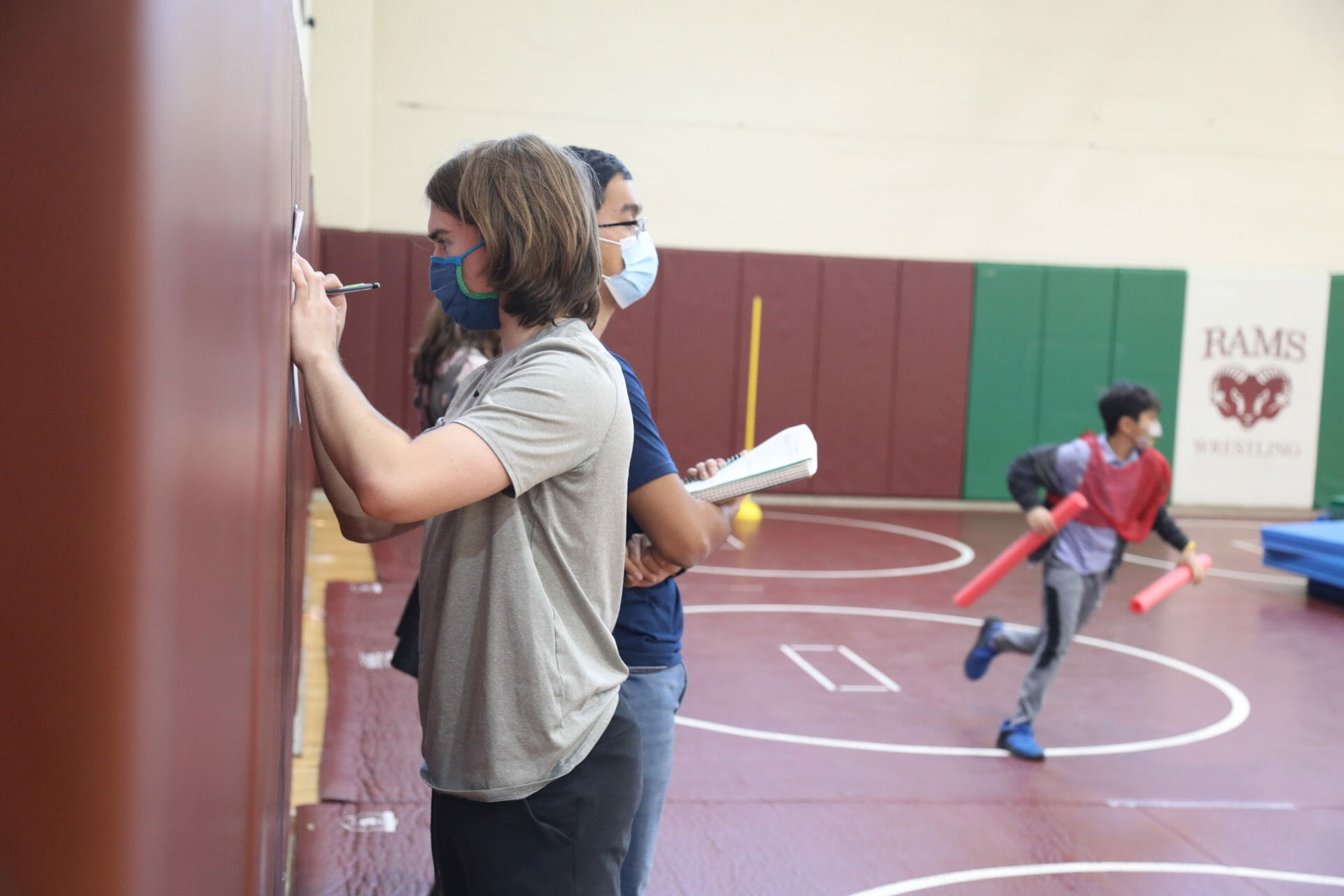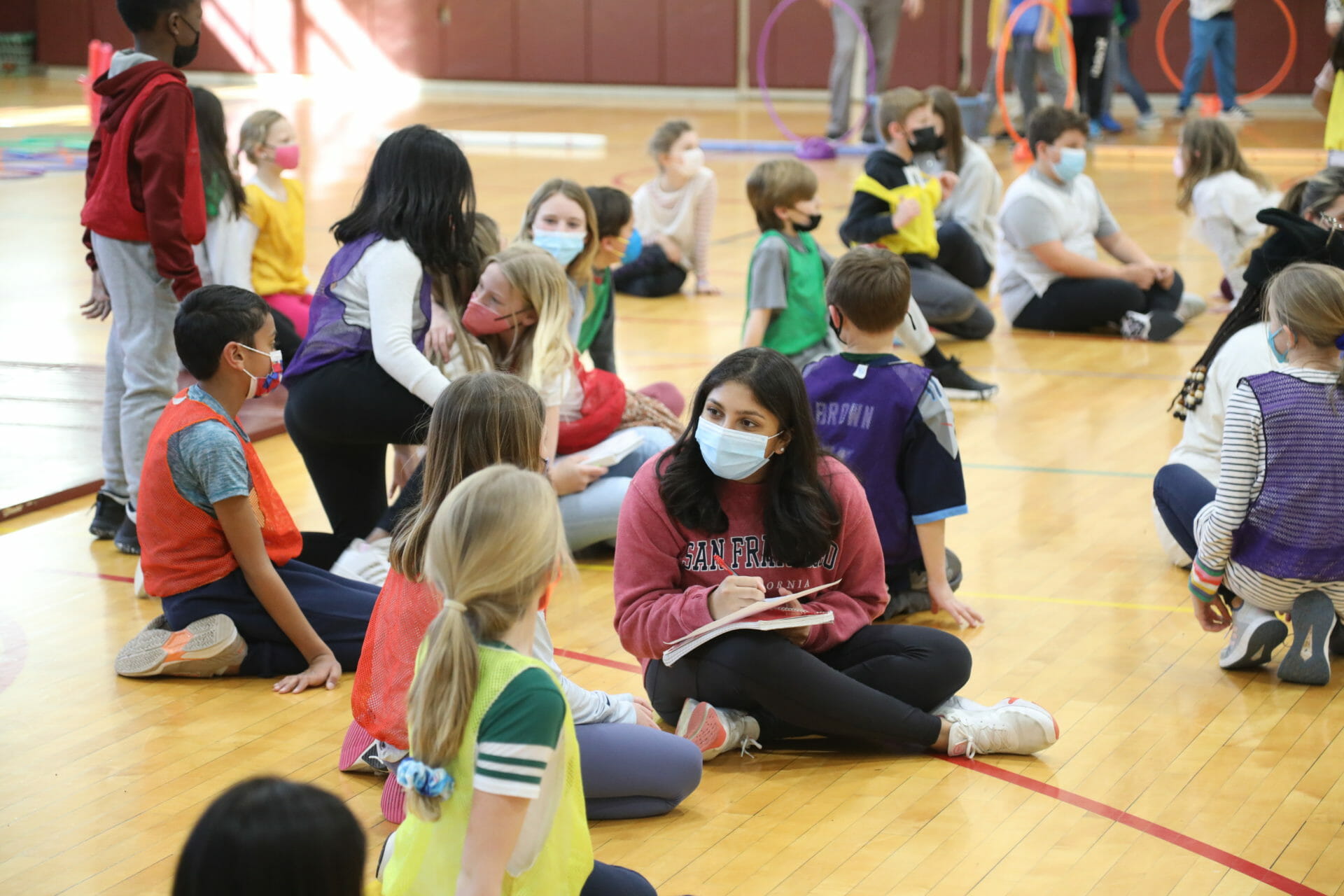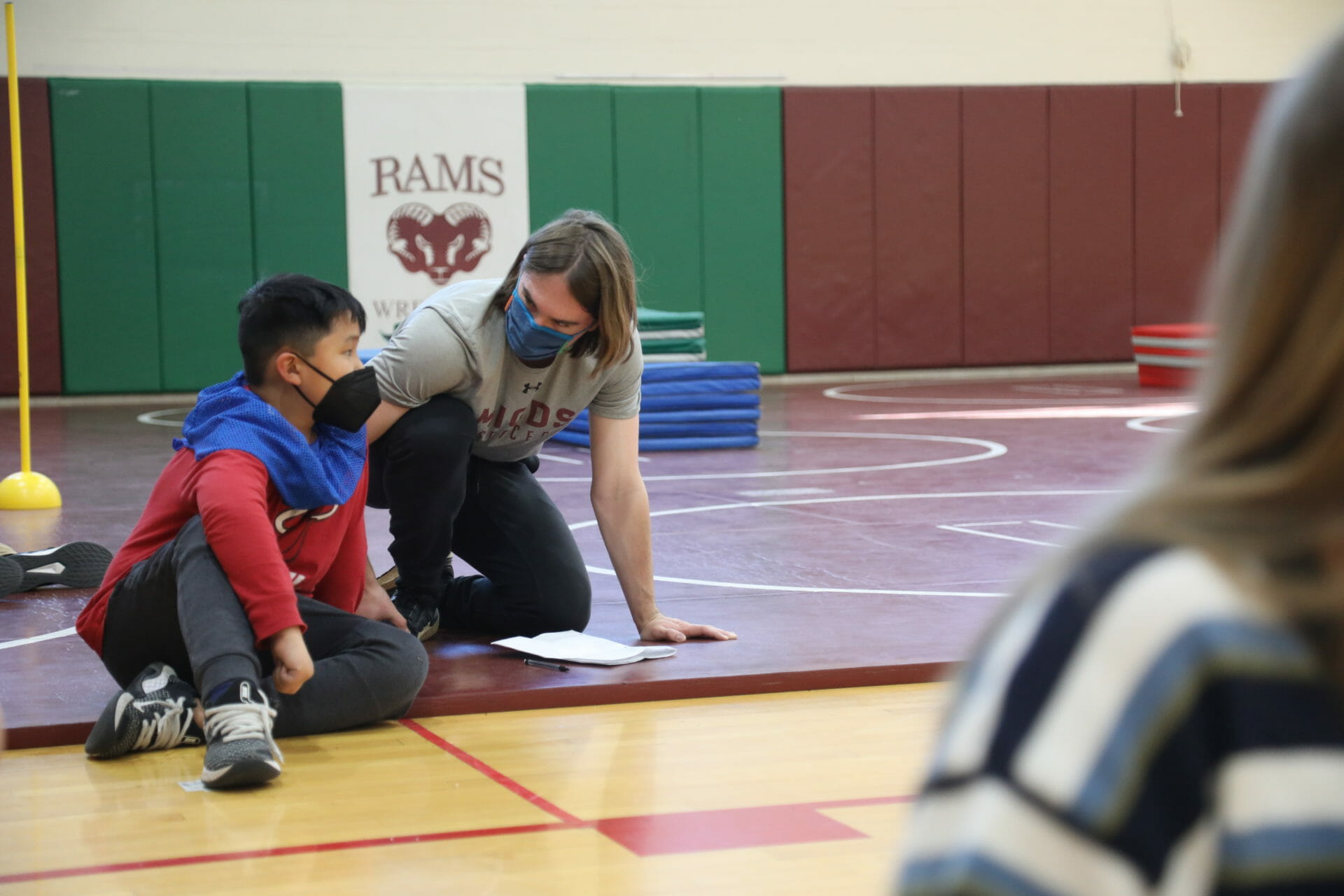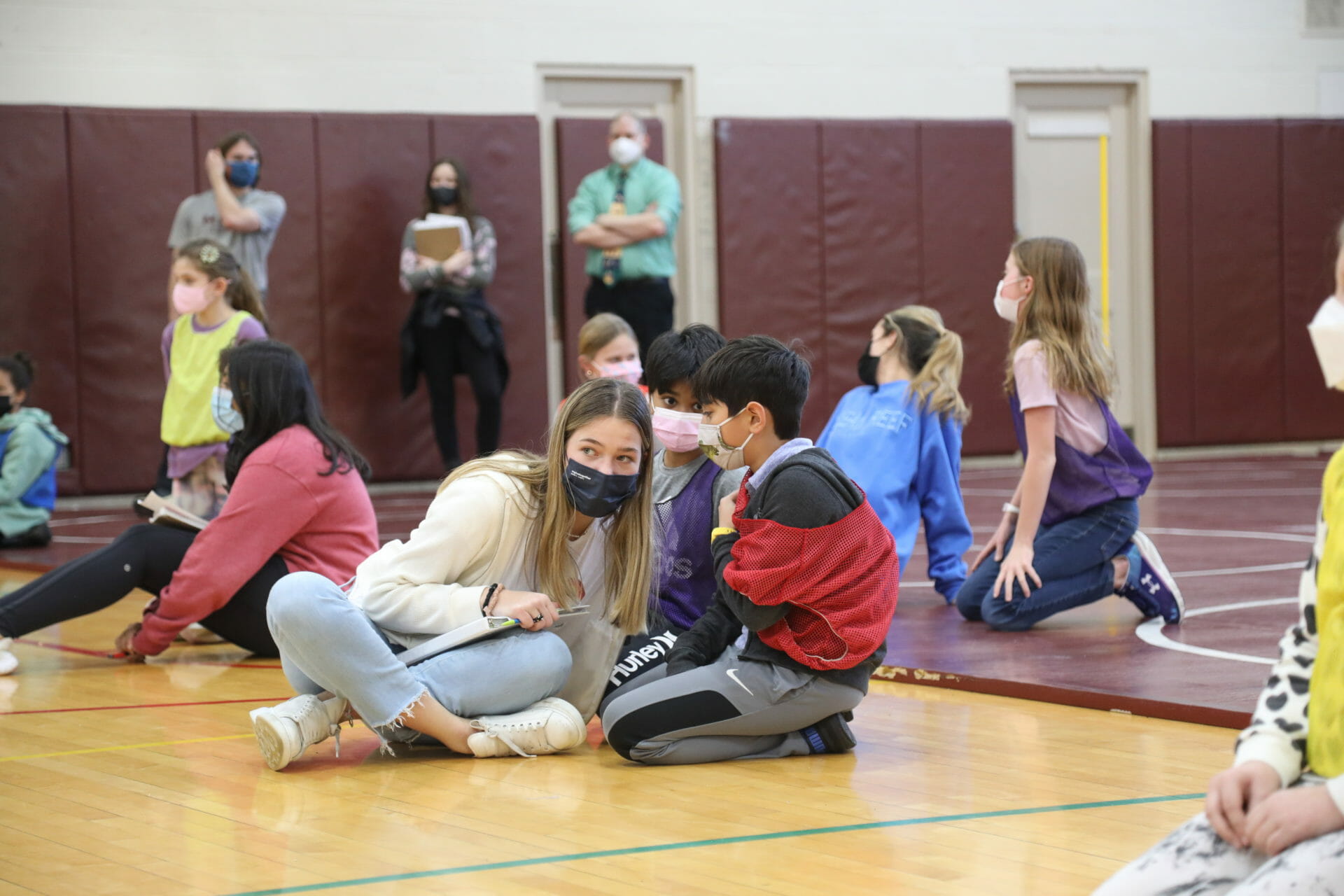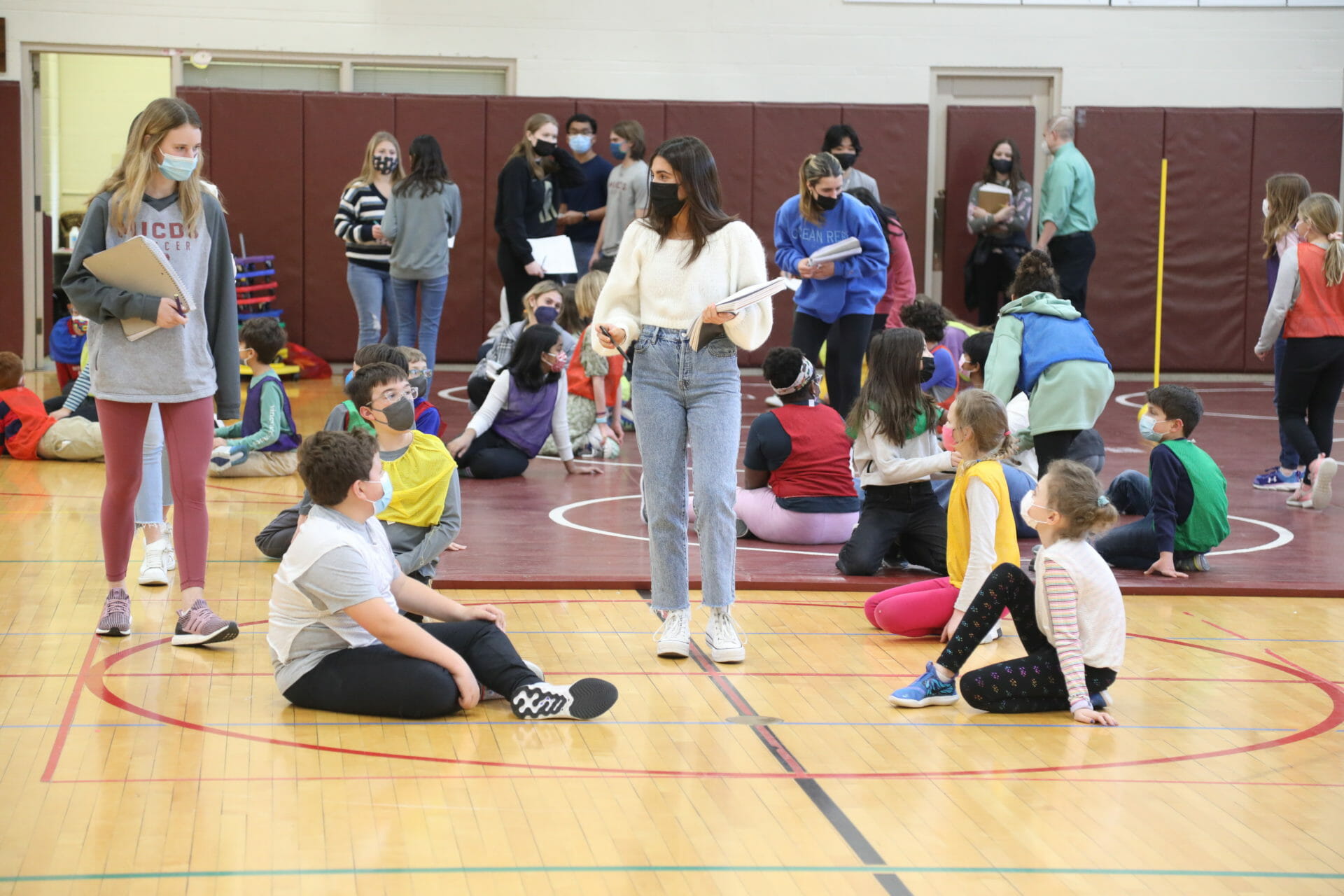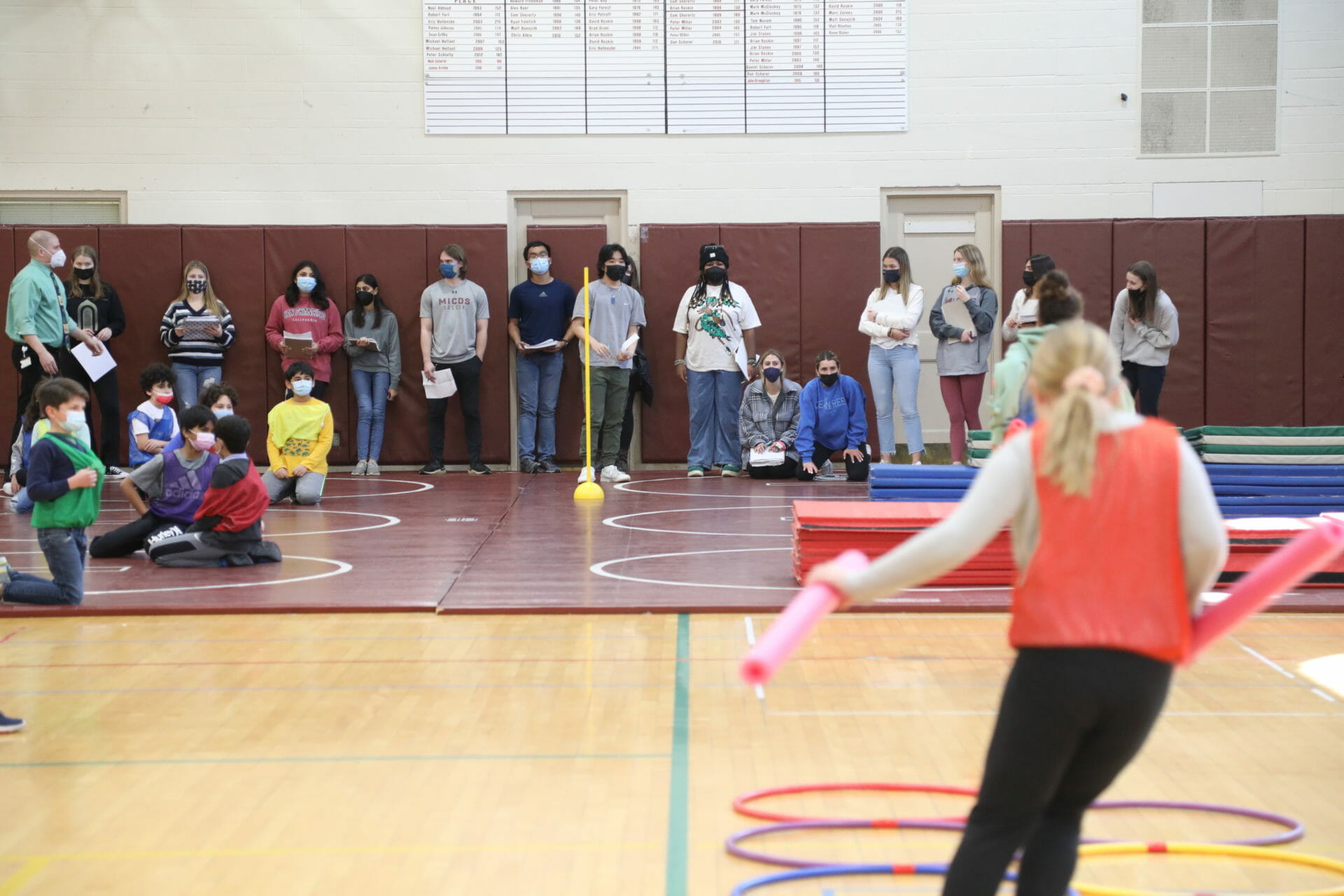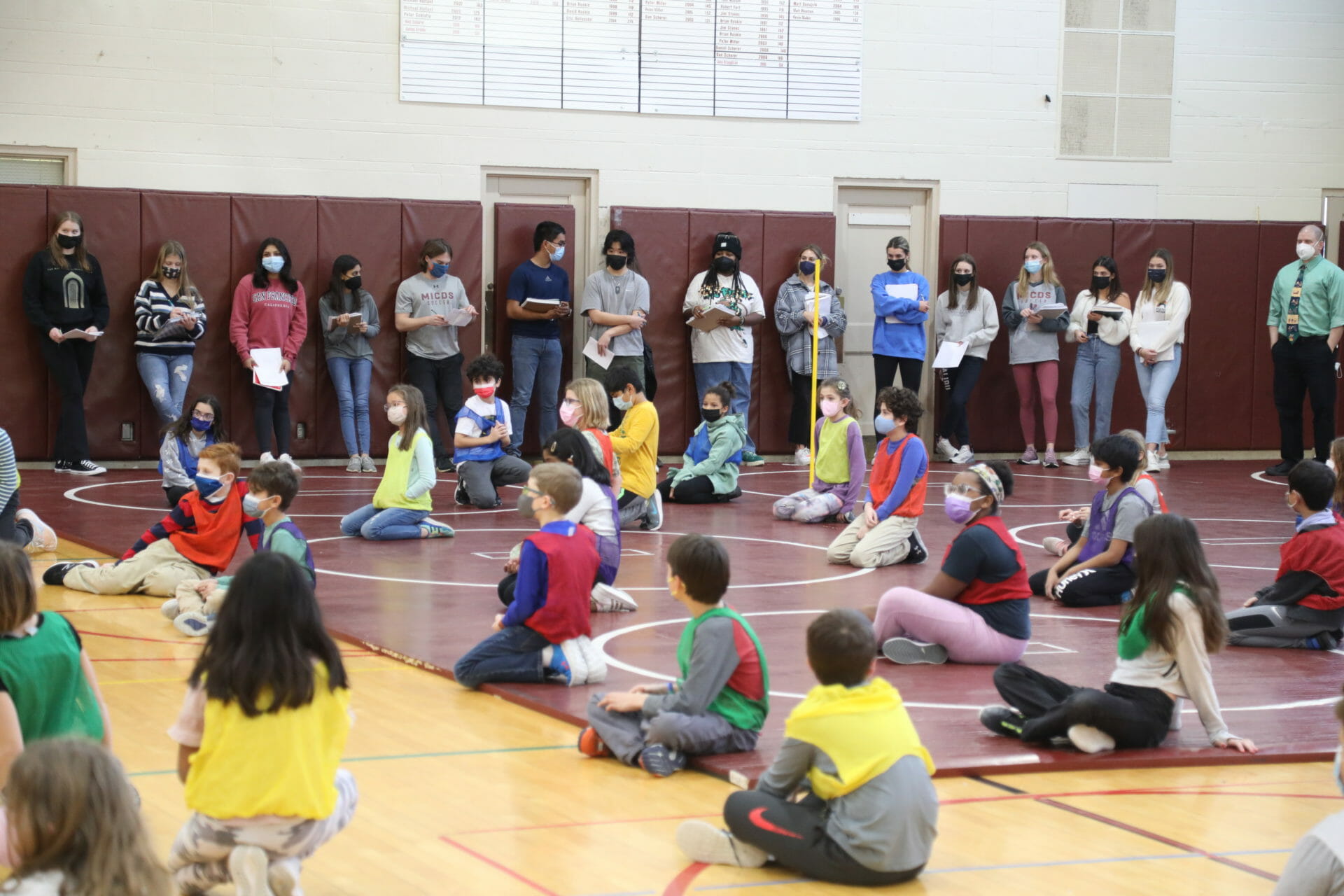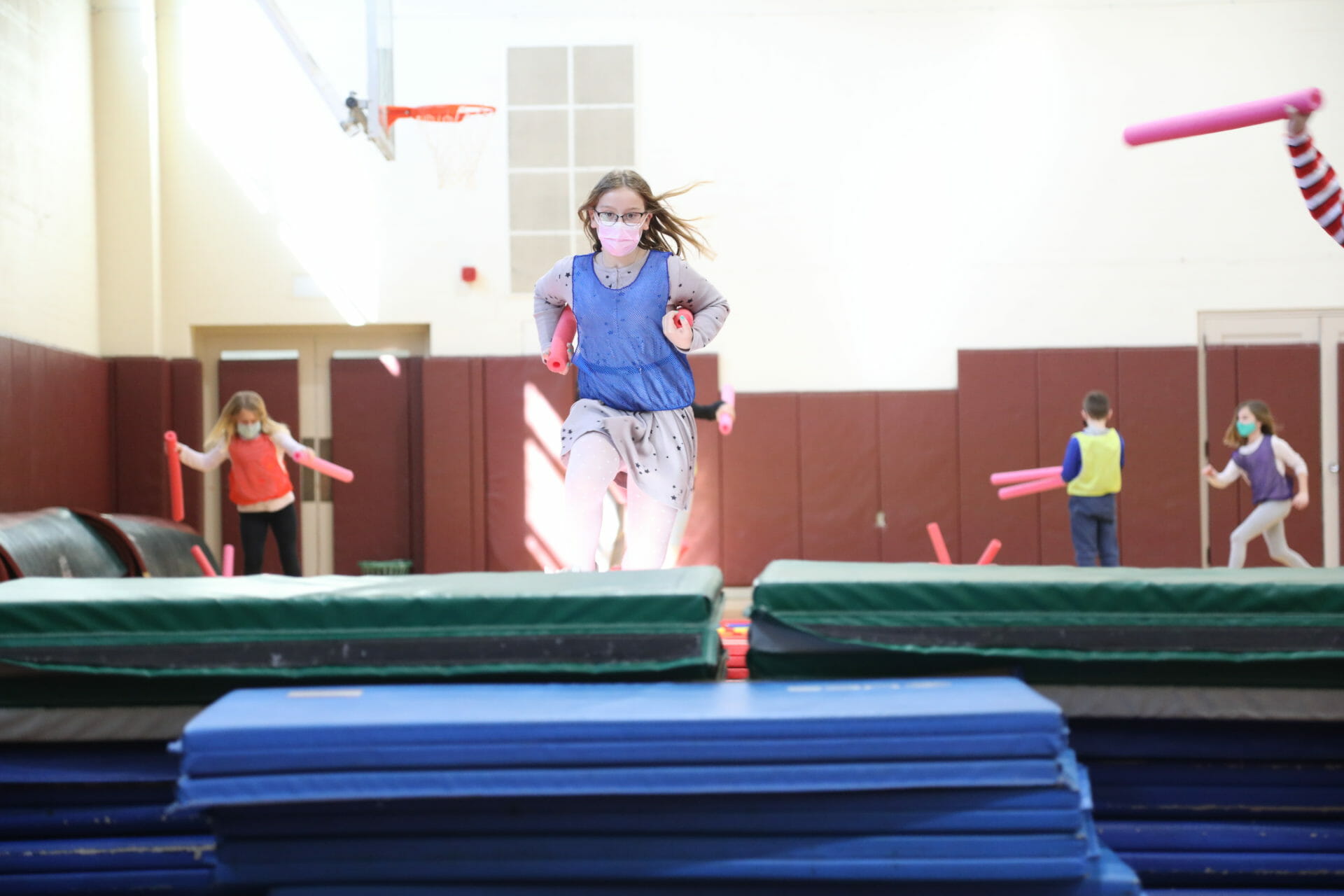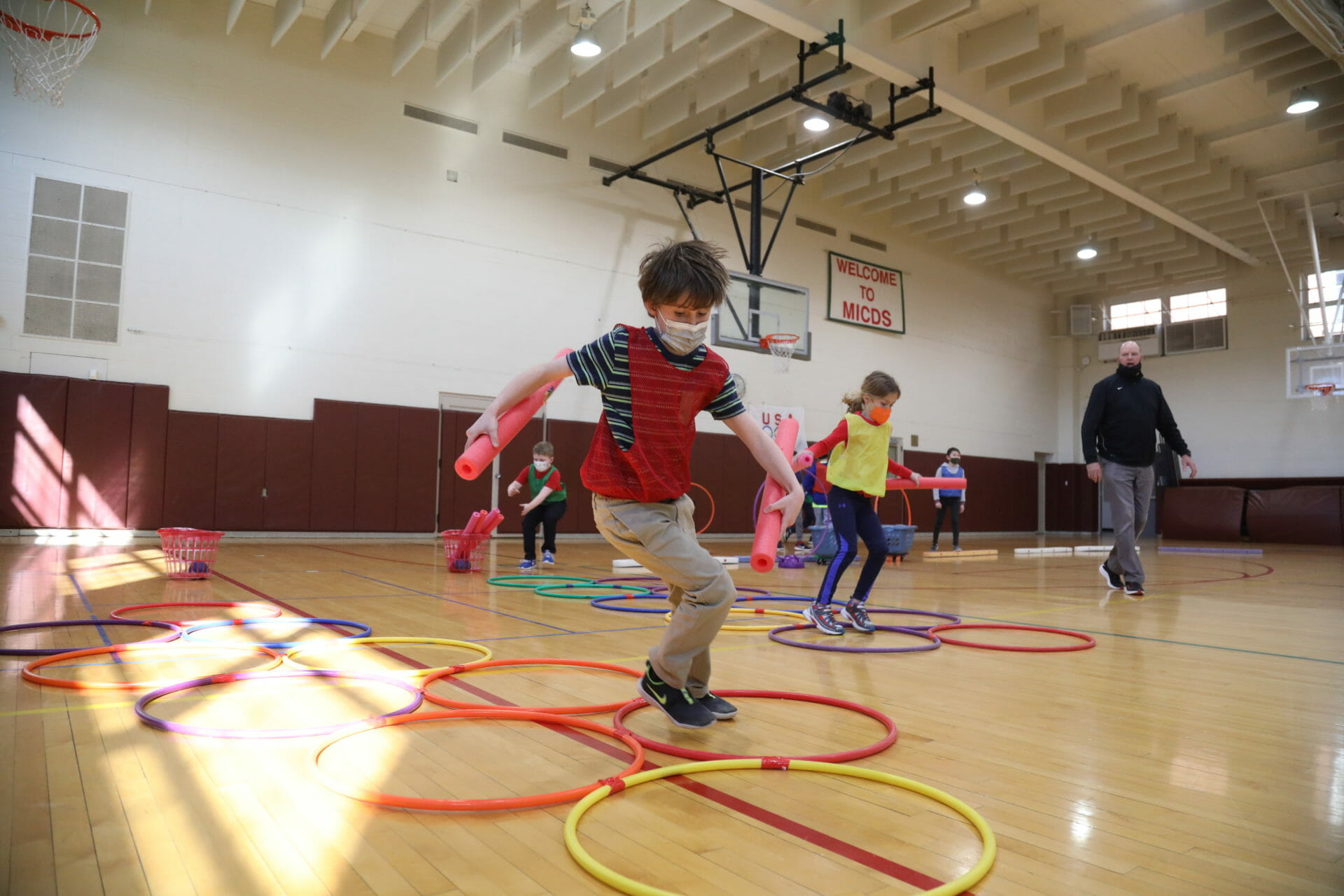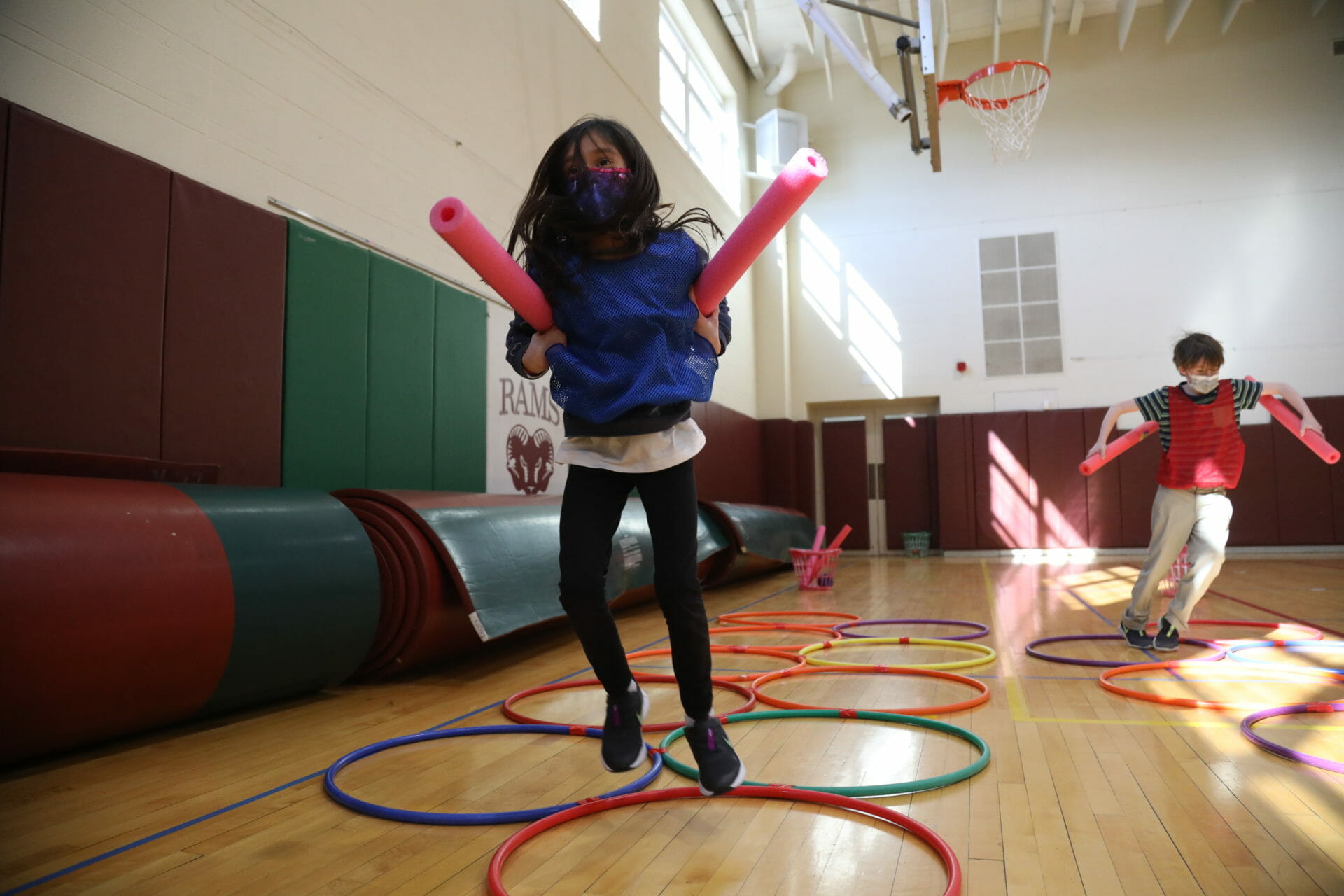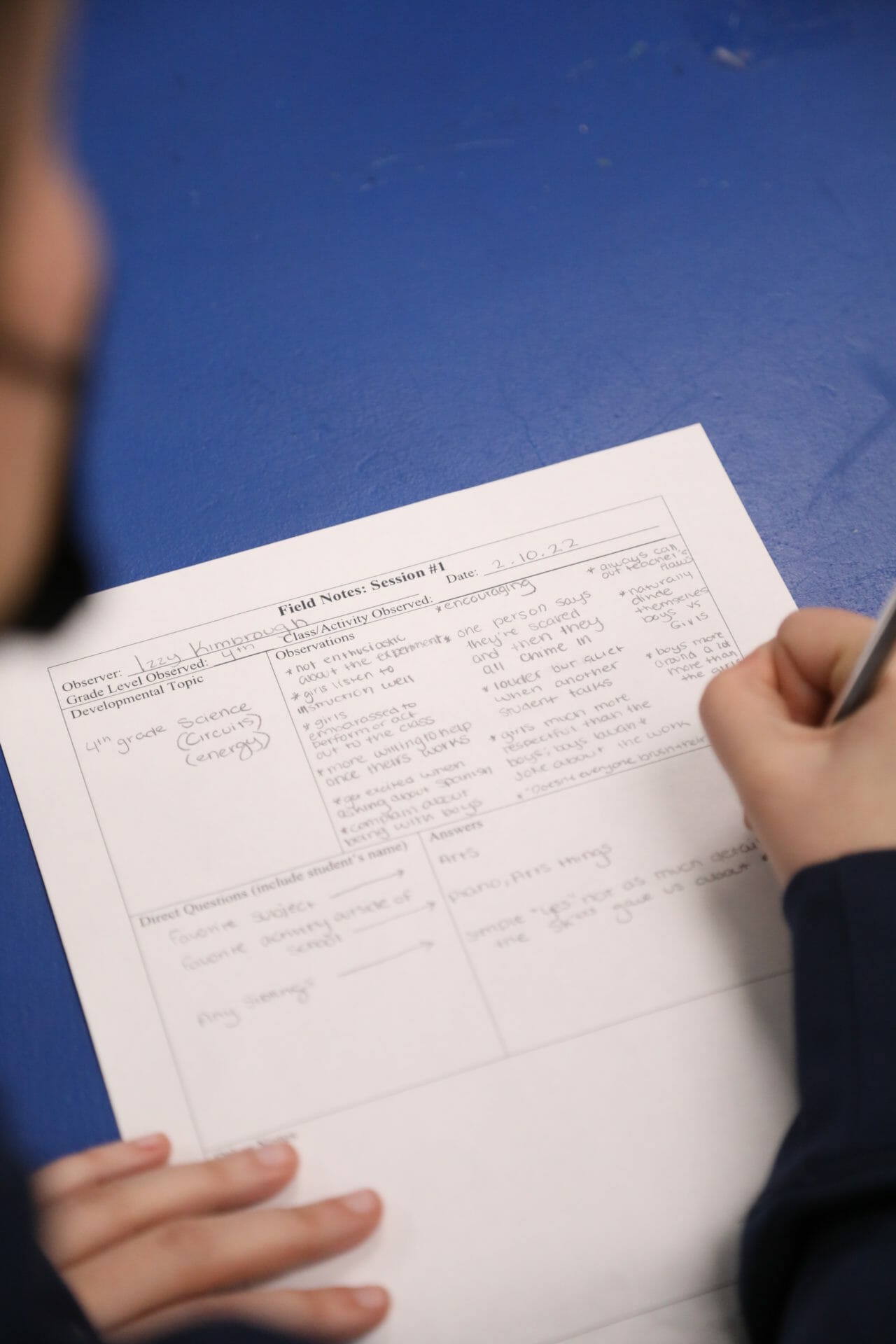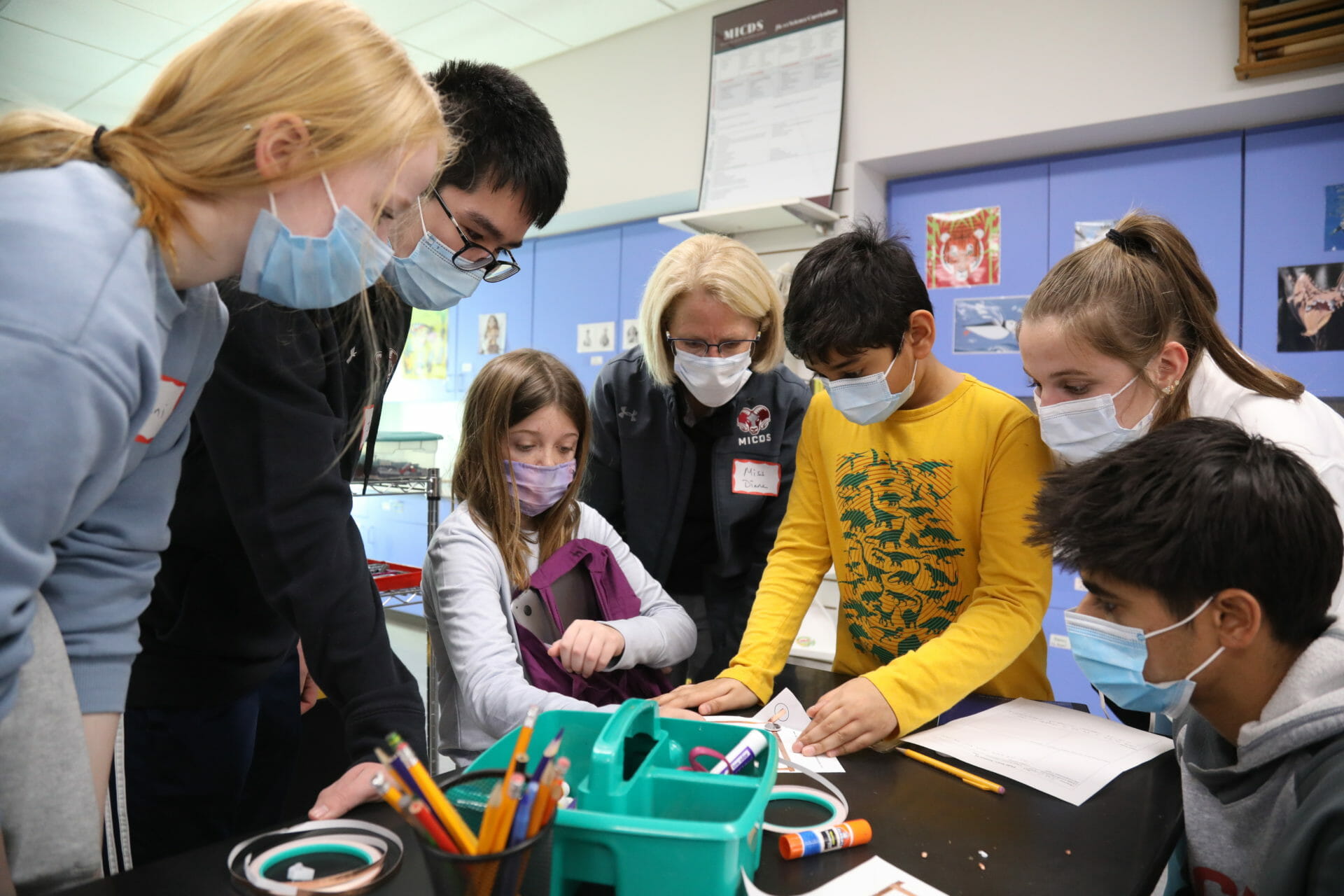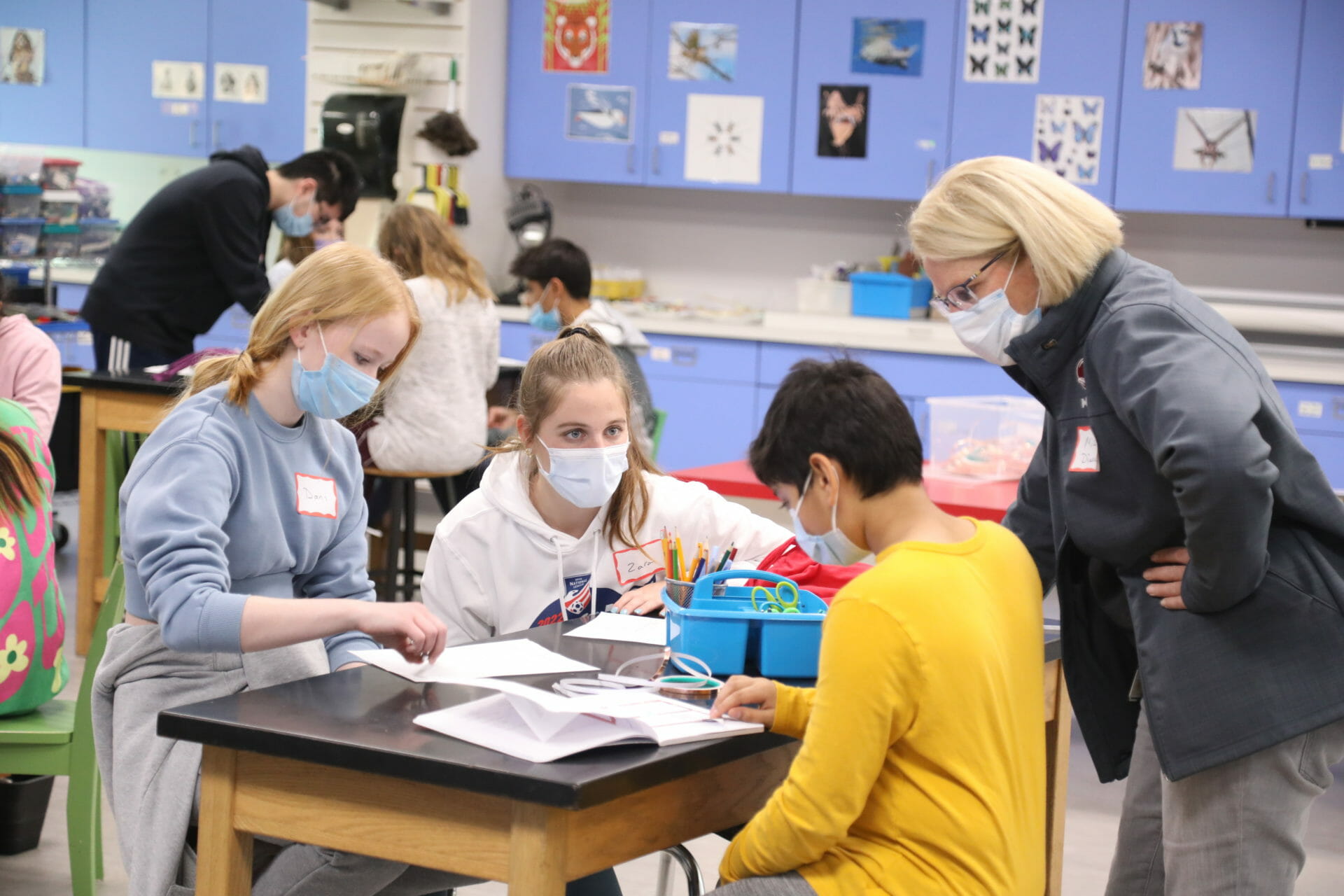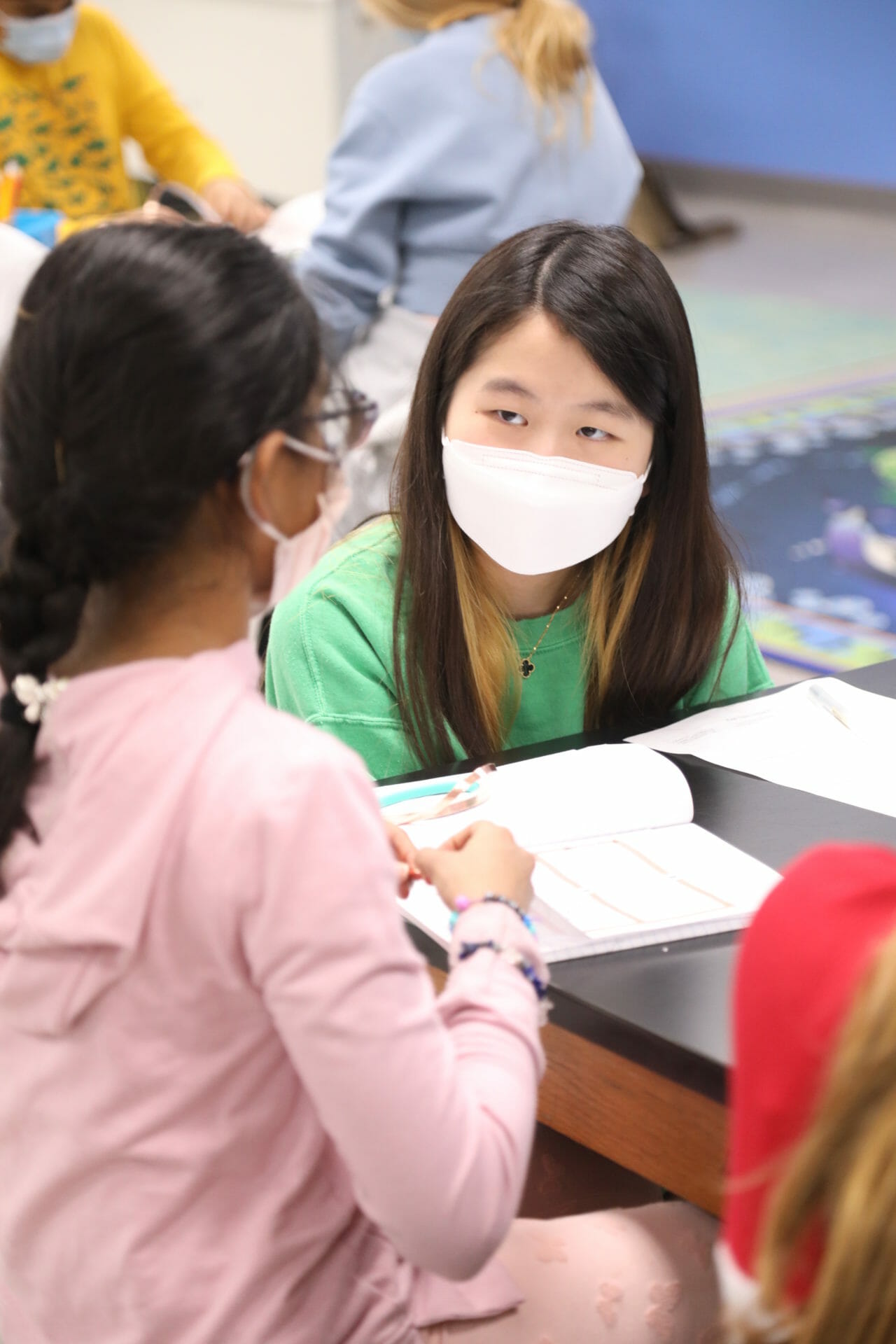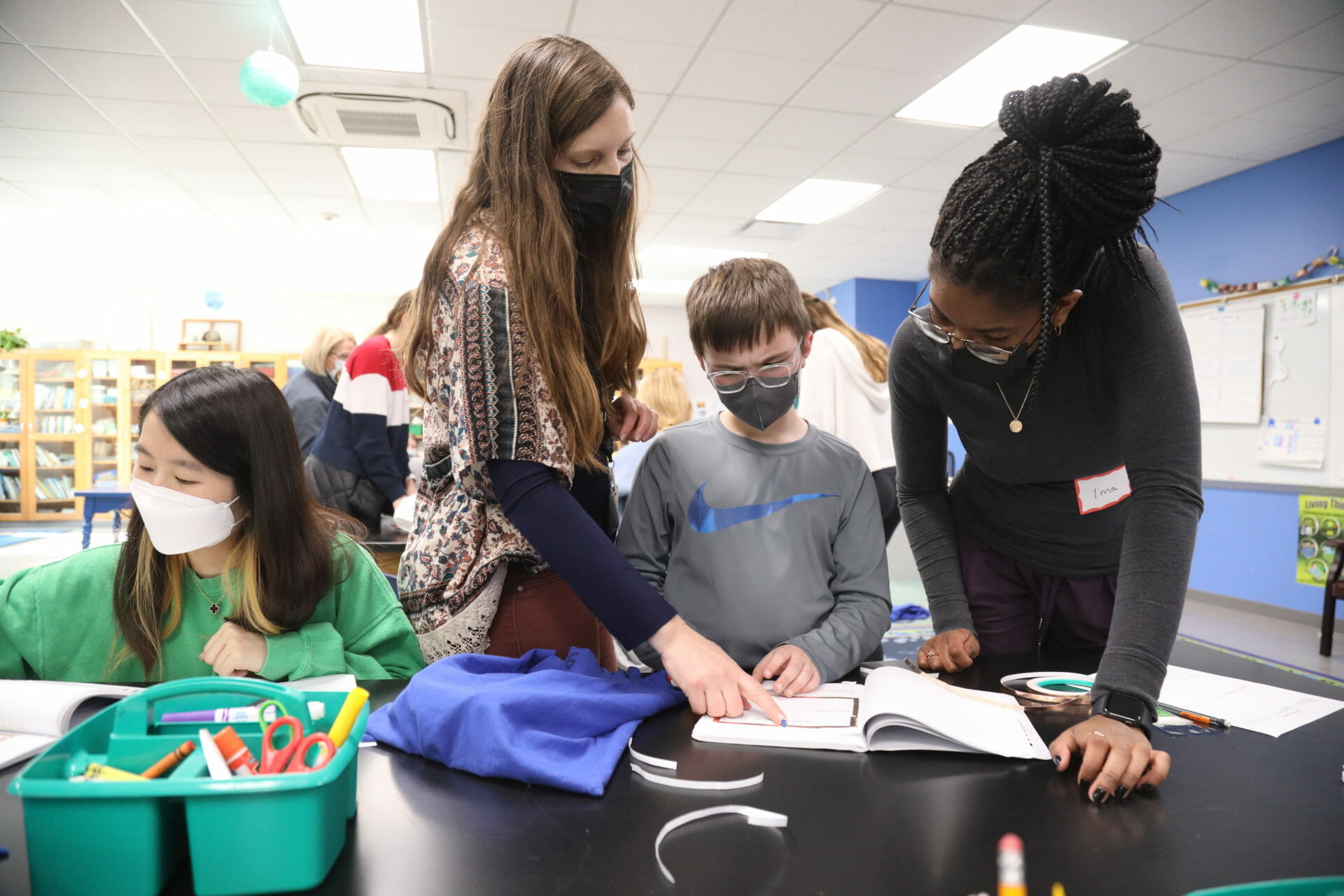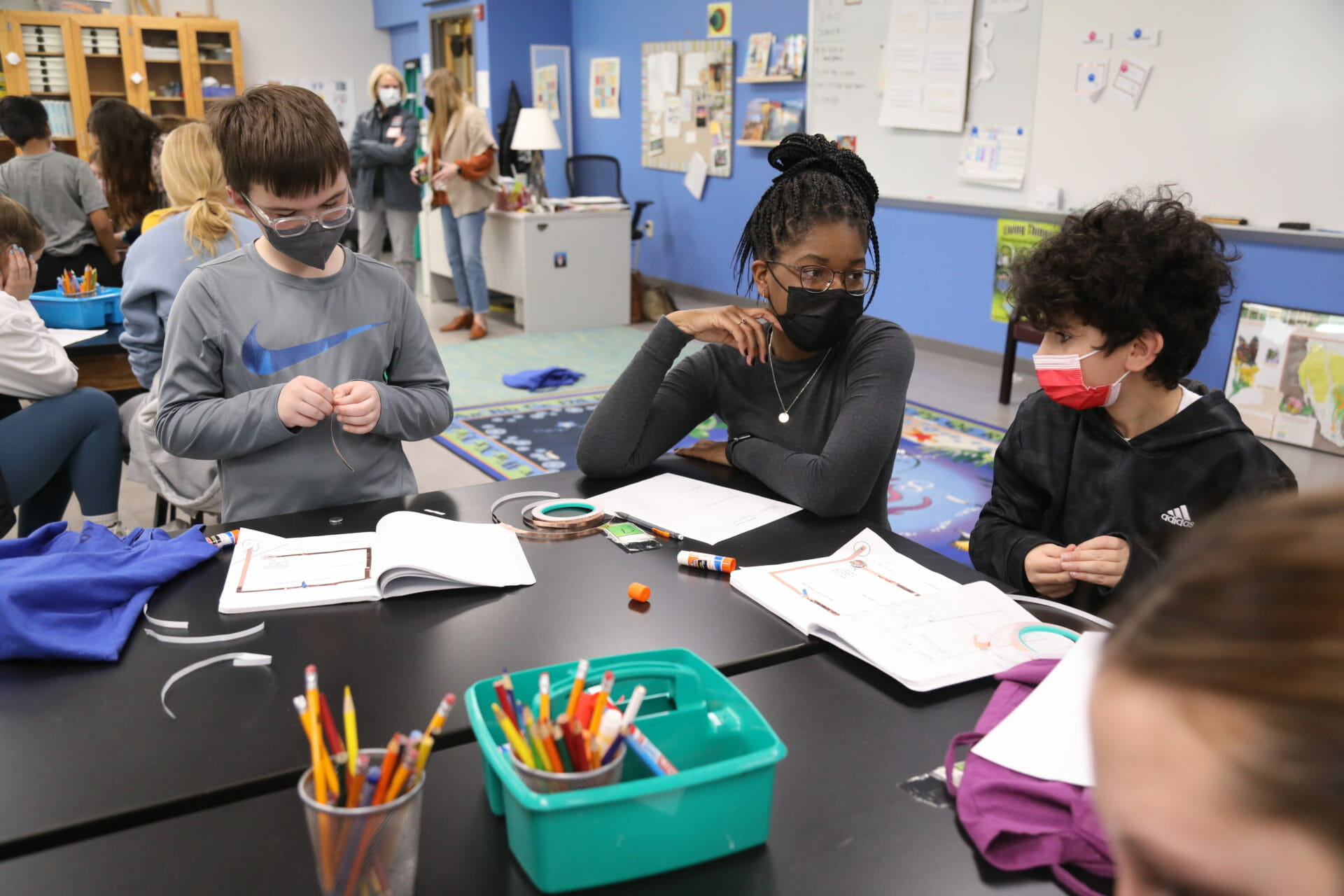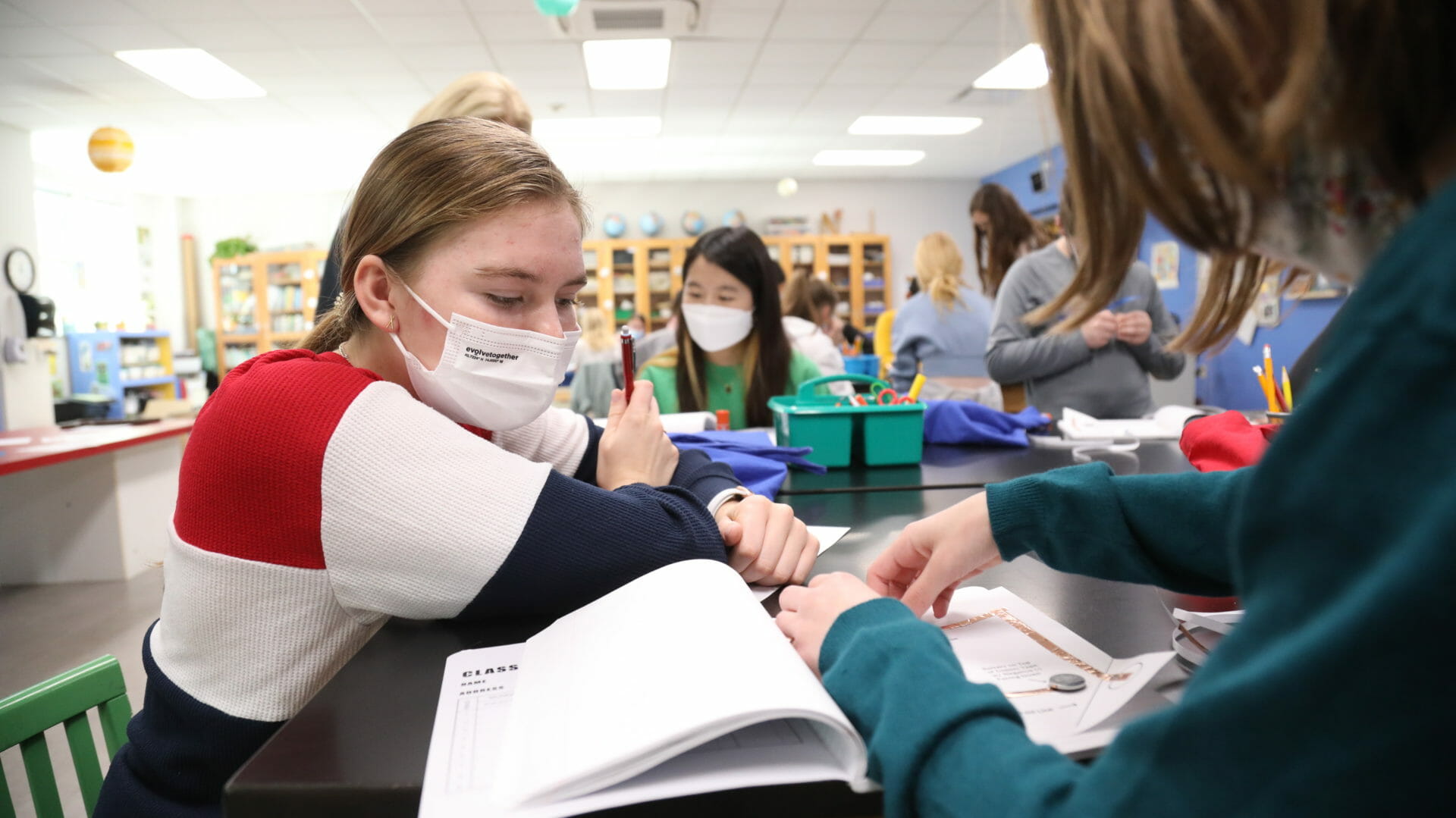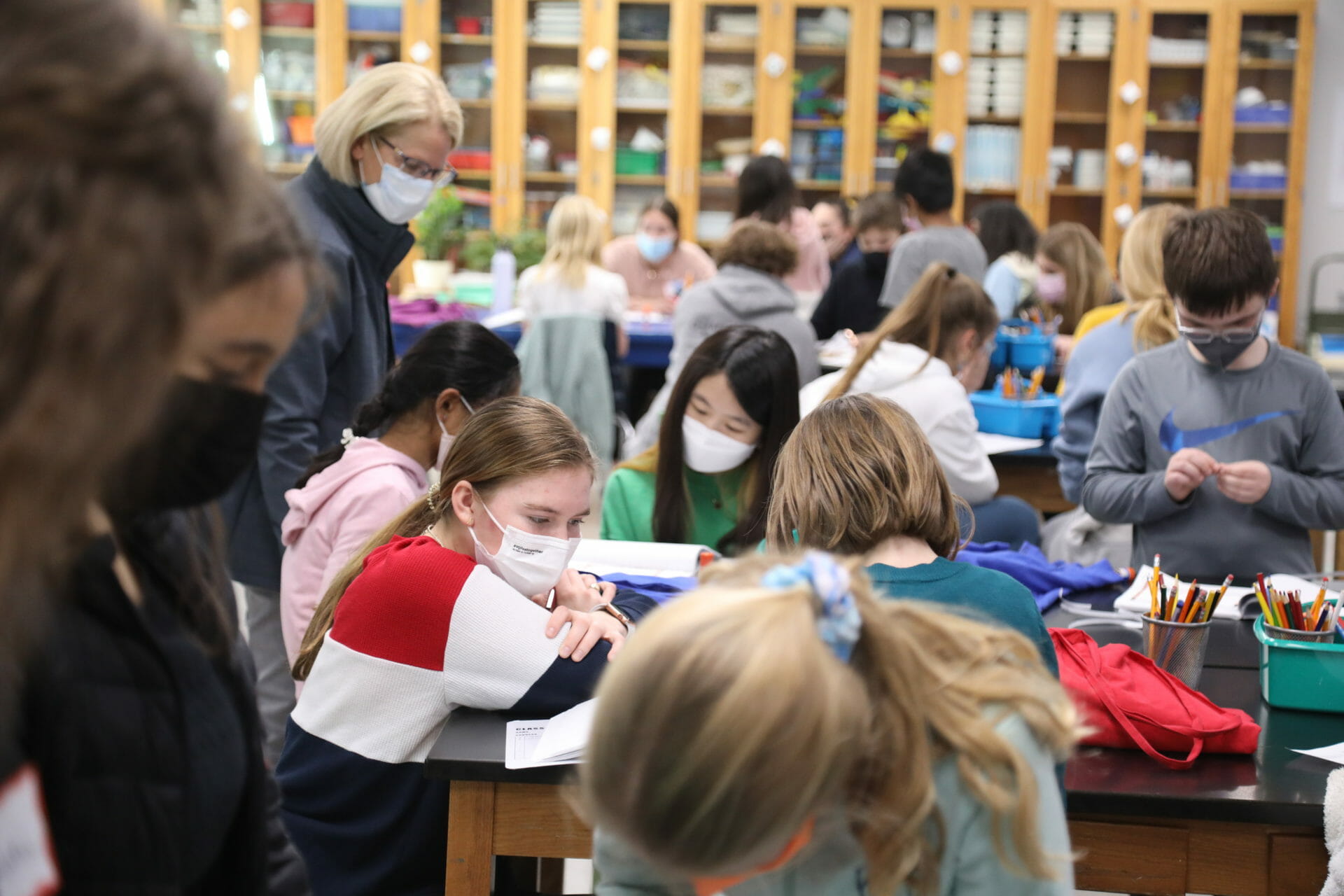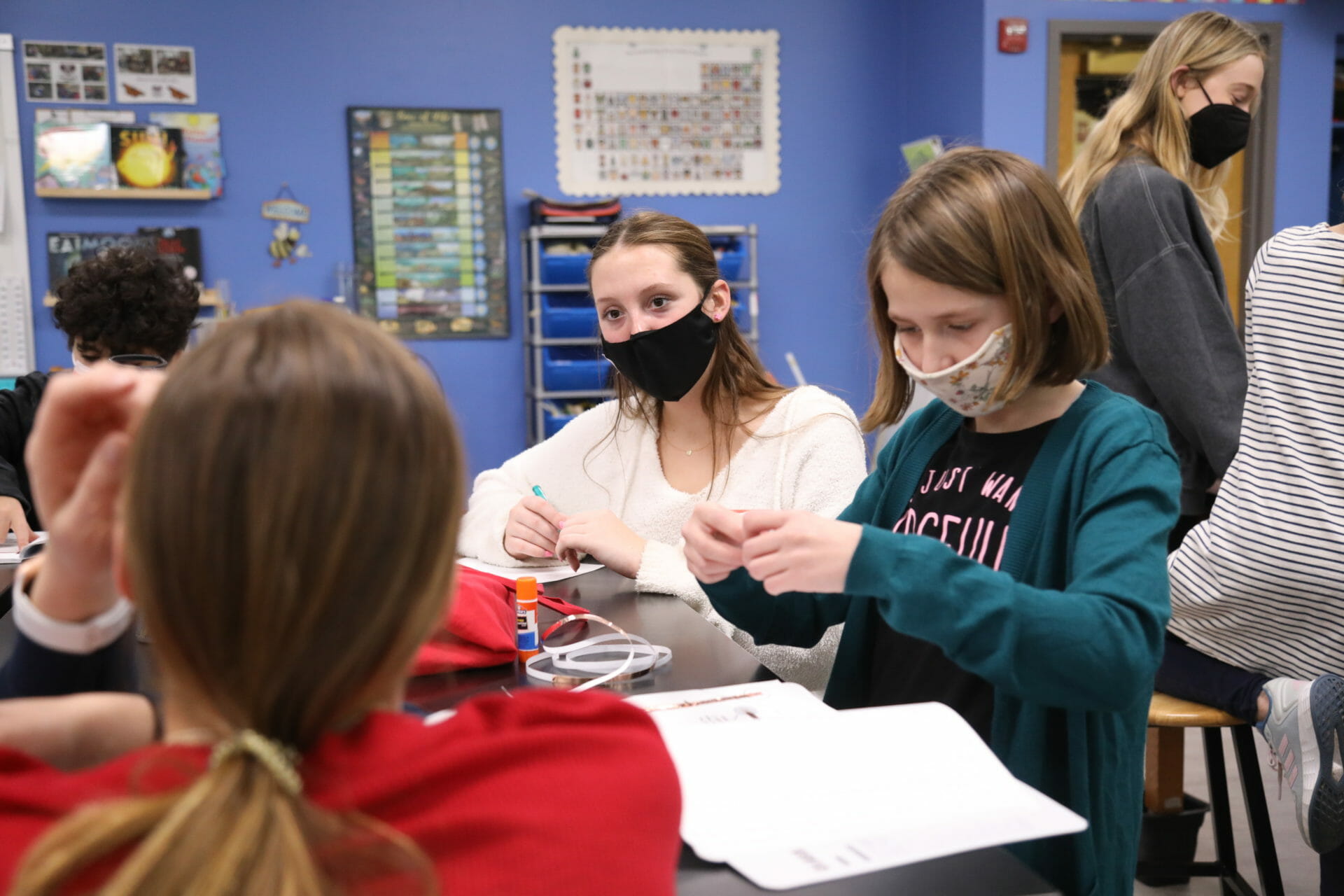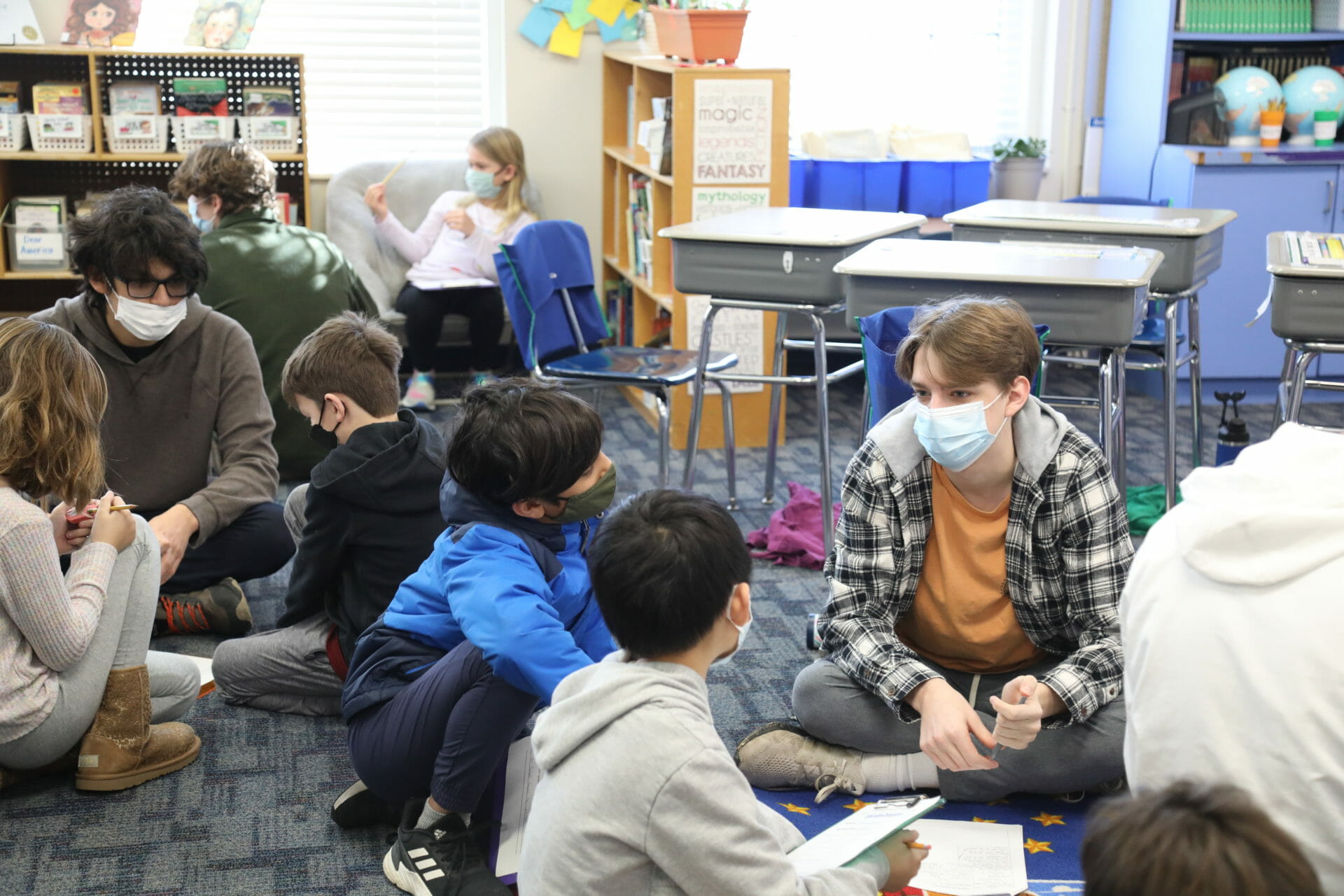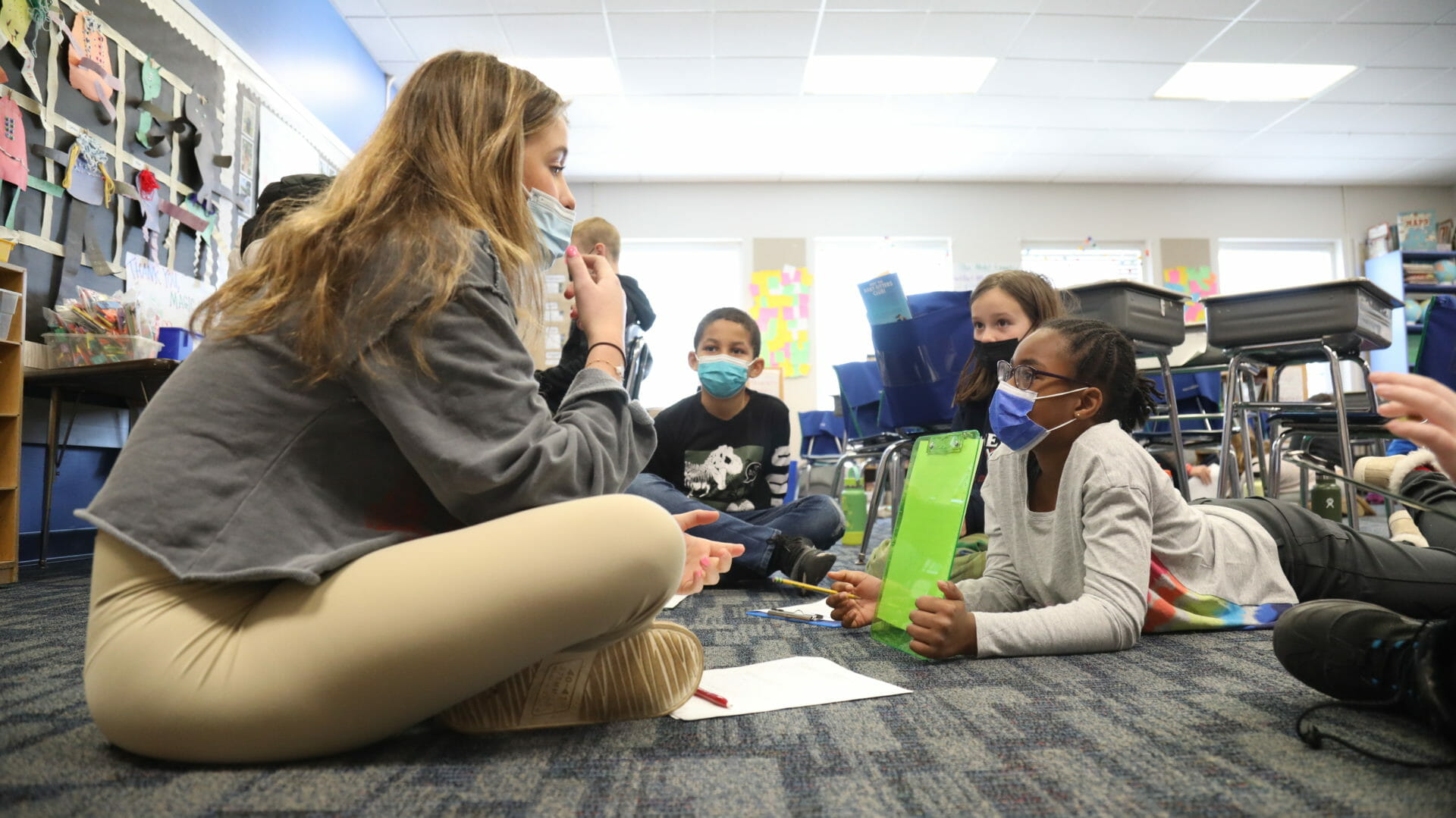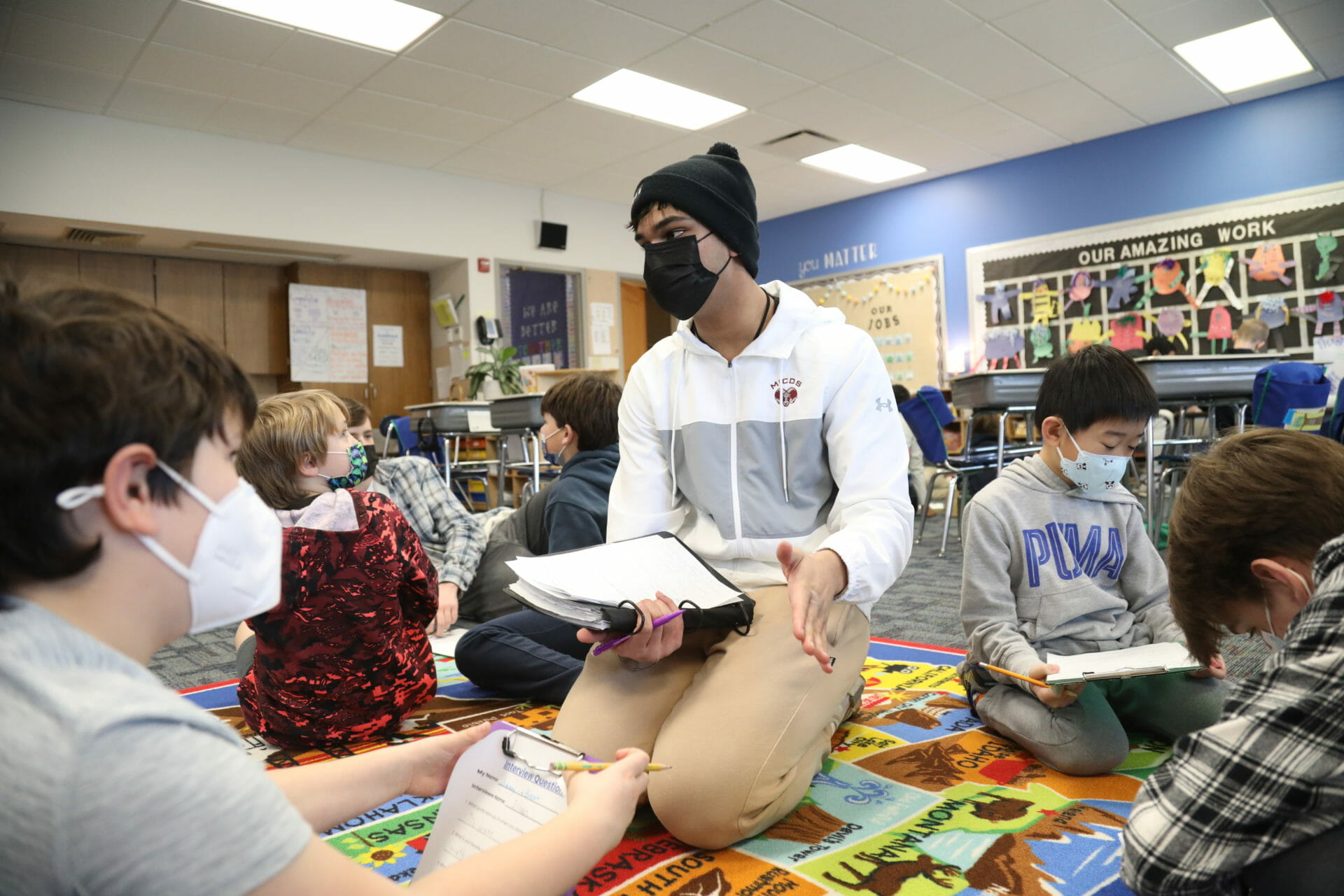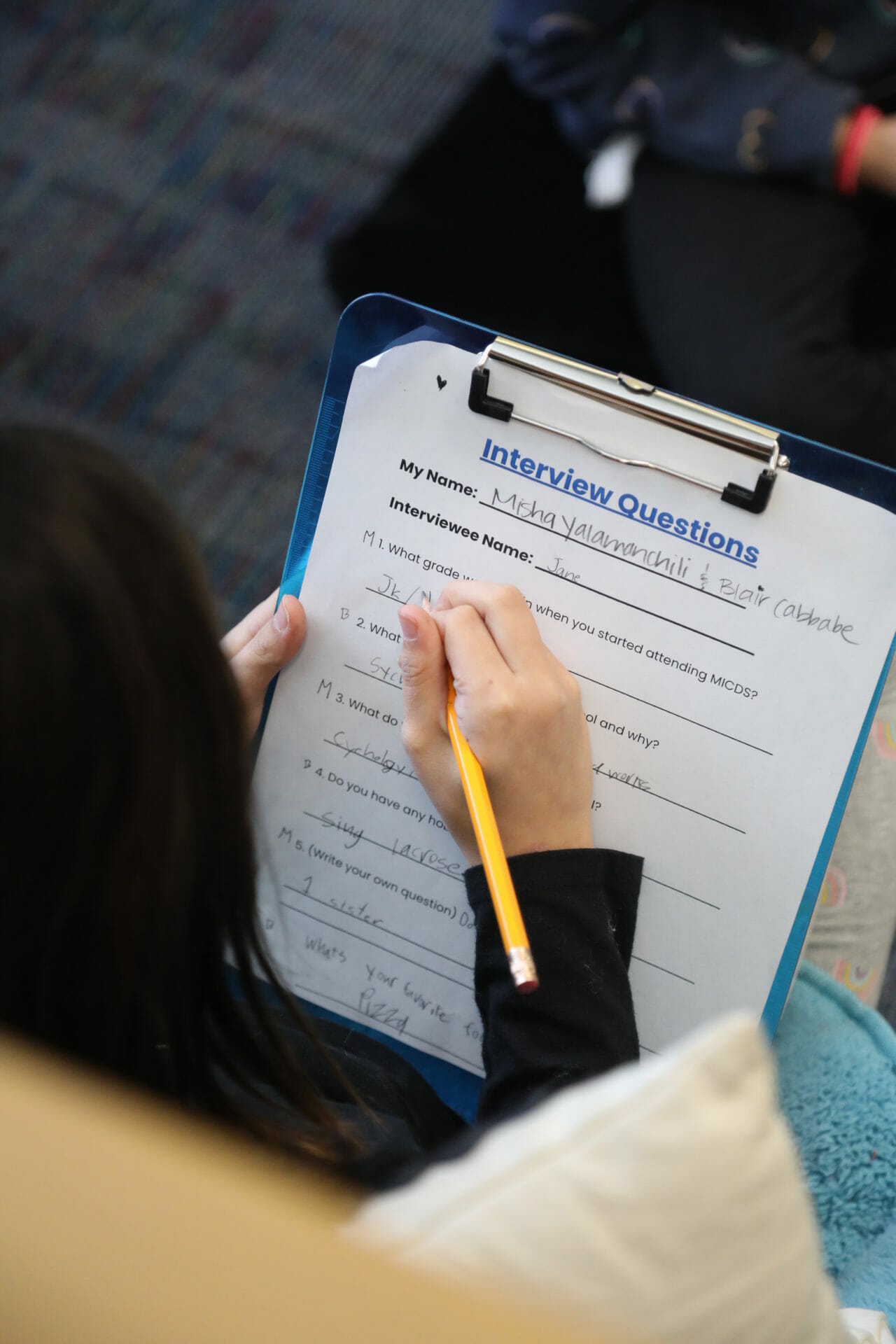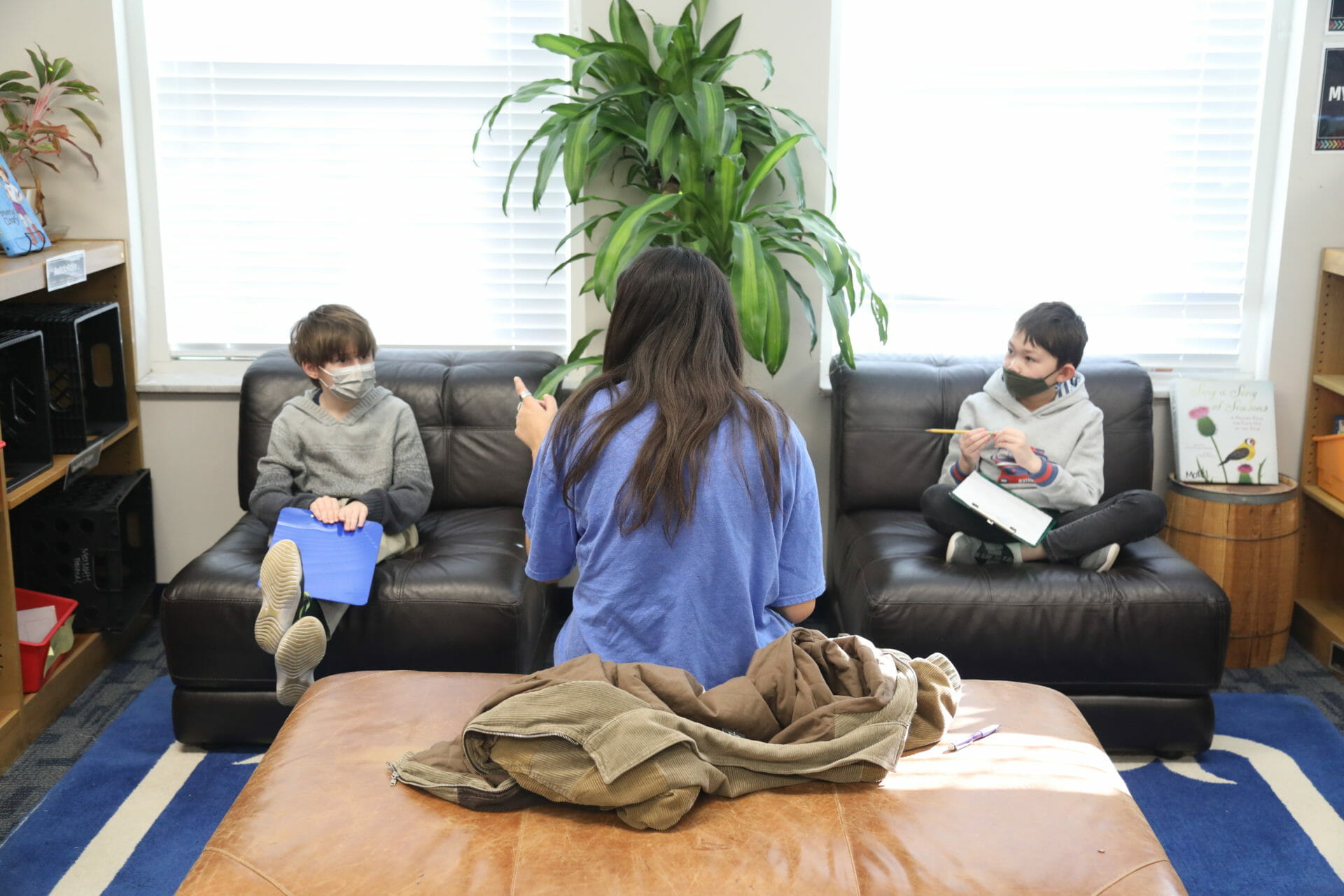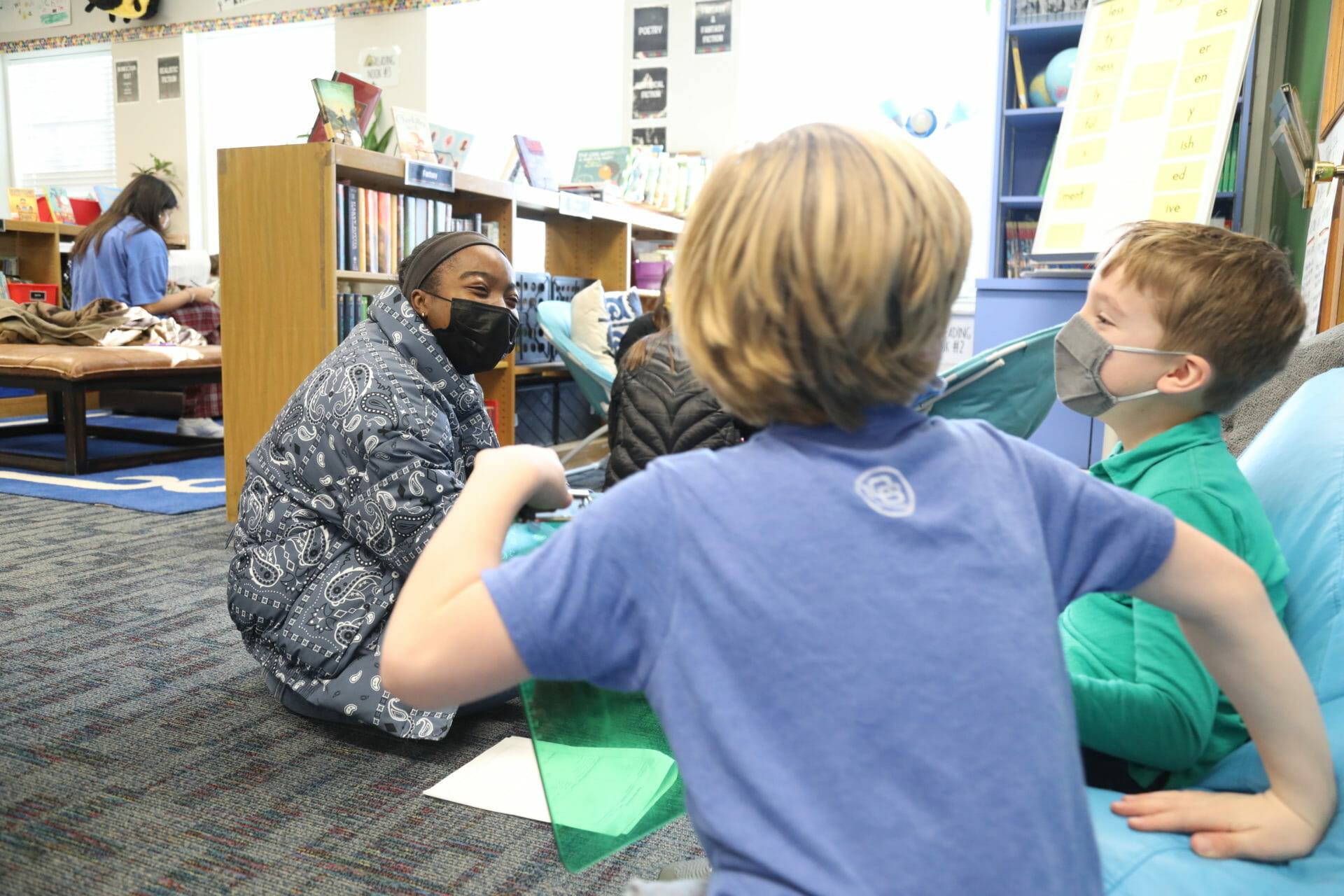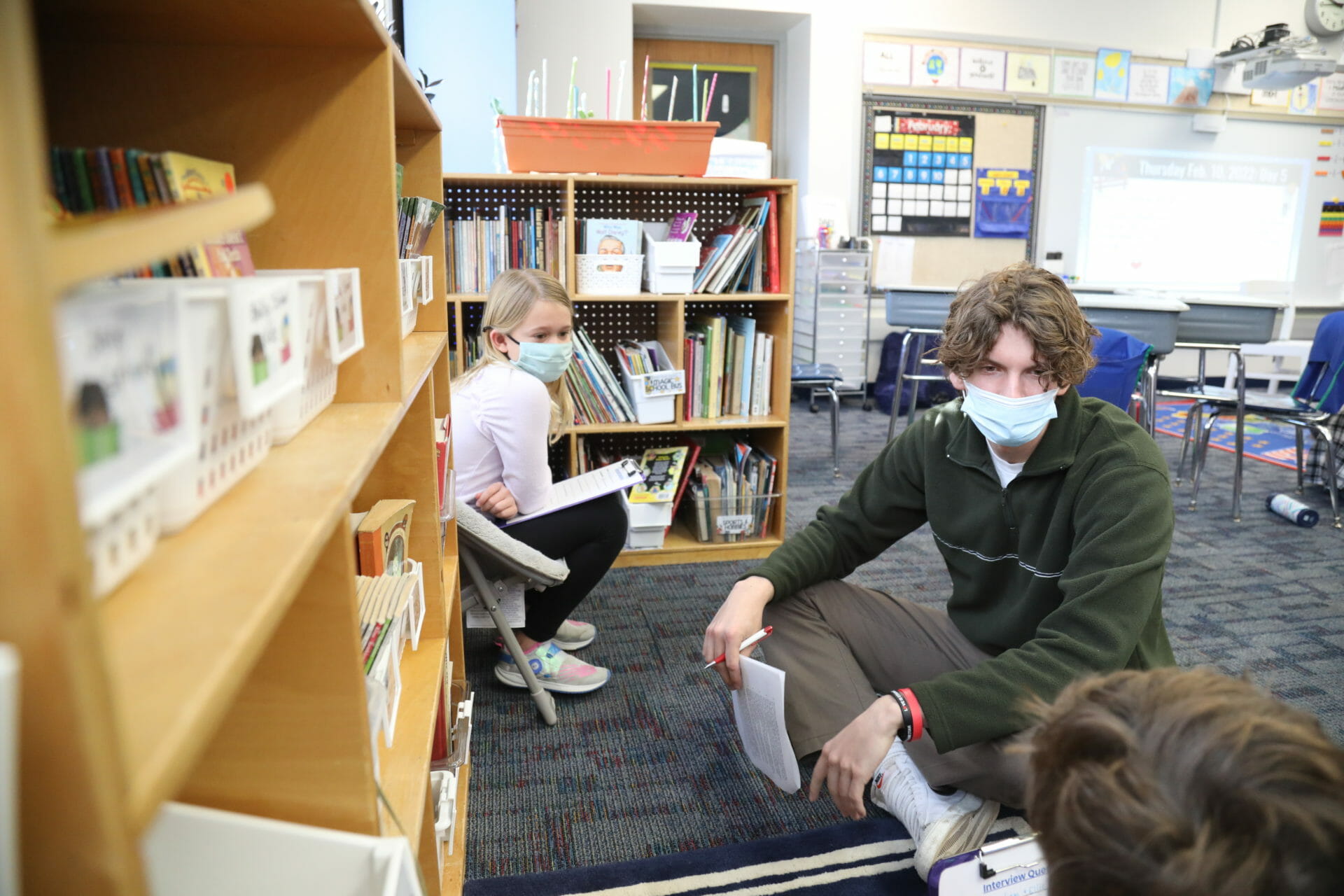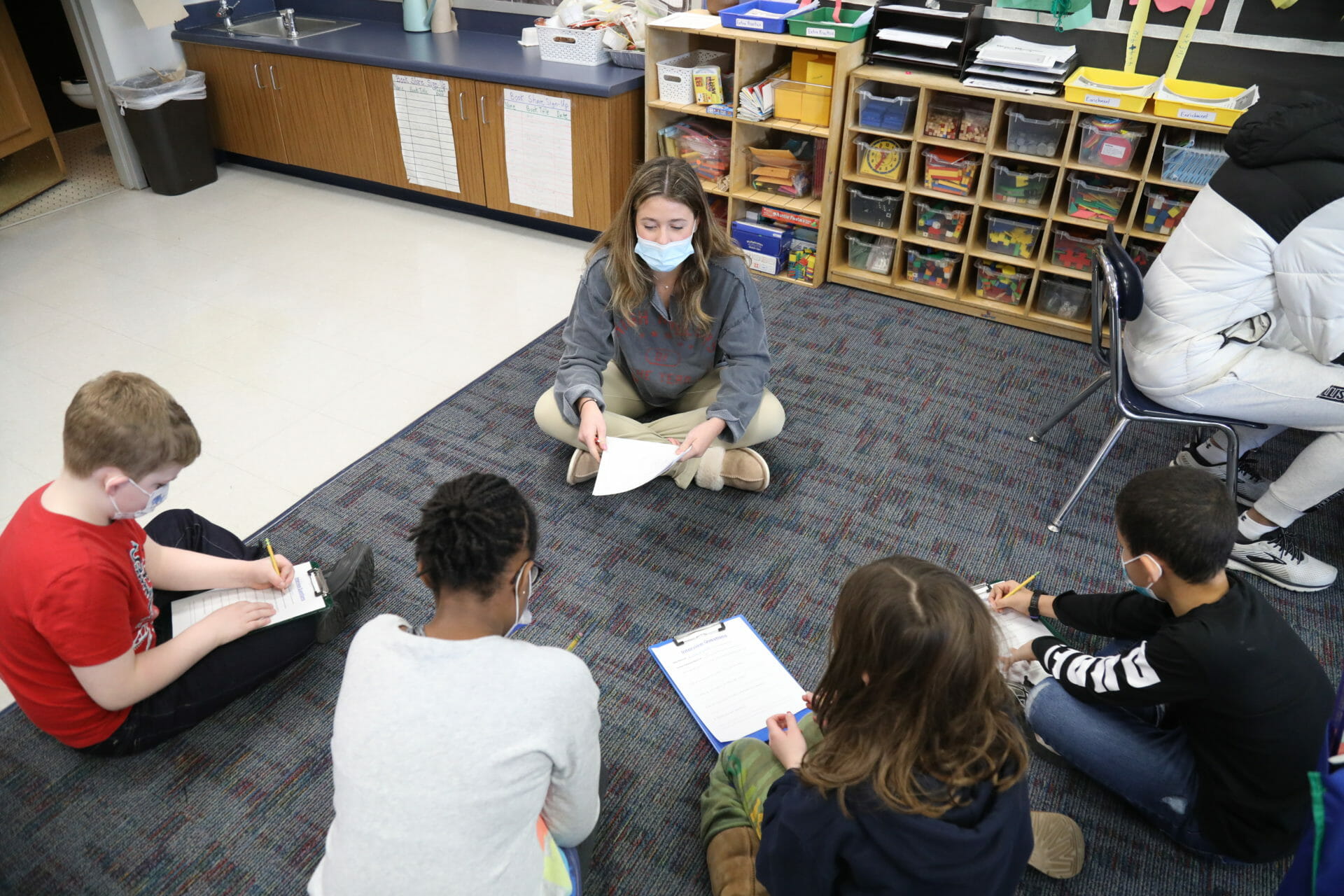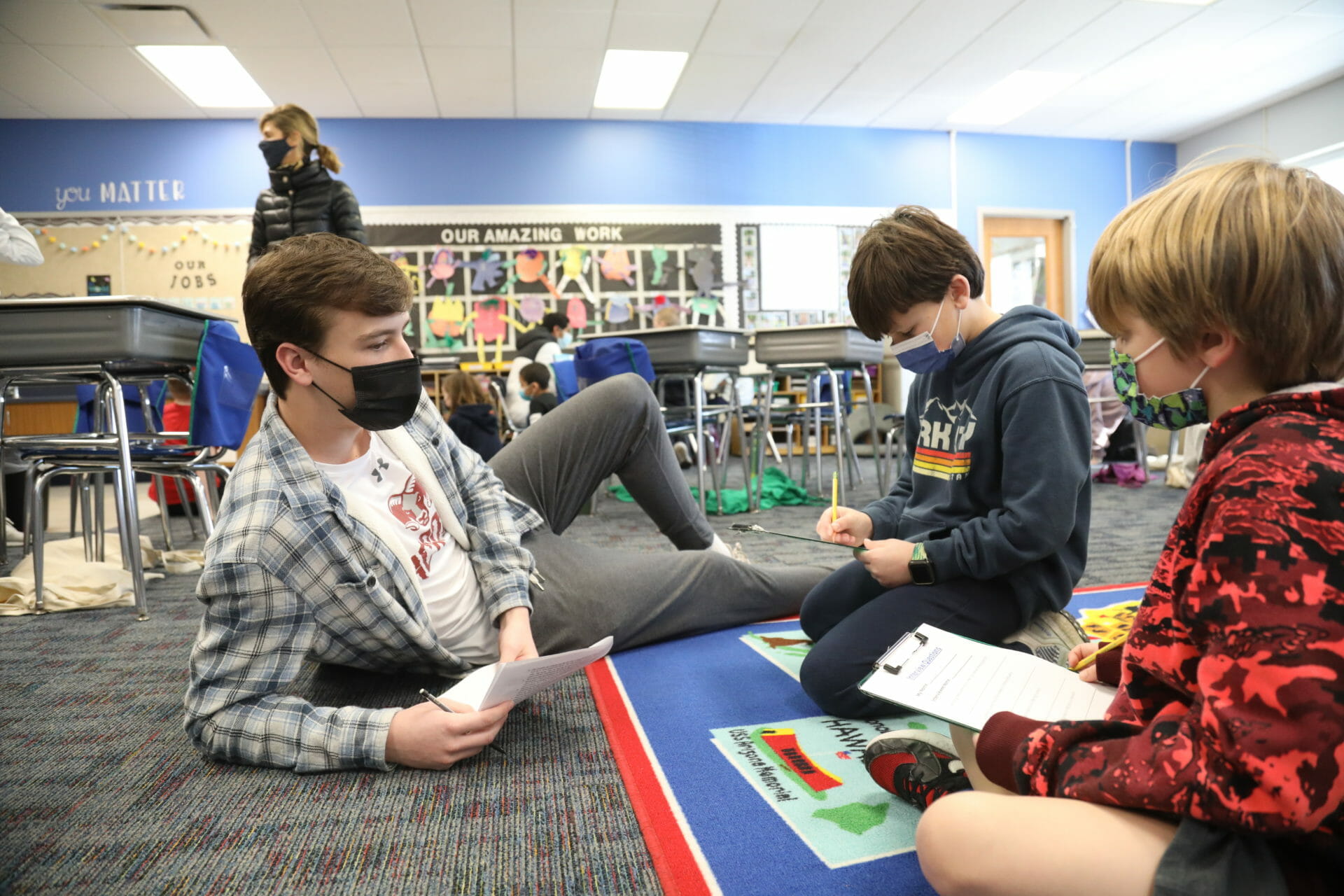Can psychology help us better understand ourselves, each other, and our communities – while simultaneously strengthening our social bonds and interpersonal connections? It sounds like a lot to ask, but this week MICDS Upper School students and Lower School students collaborated to prove just how much psychology can accomplish.
Aaron Proctor, Upper School Math and History & Social Sciences Teacher and Diane Gioia, Upper School Dean of Students & History Teacher, took their AP psychology students to different Lower School grade levels for a better understanding of the material they have been studying. “We are studying a unit on Developmental Psychology, especially focusing on the physical, social, and cognitive developmental hallmarks at various stages of childhood” said Proctor about his class’ current unit.
After learning the material in a textbook, these Beasley interactions present an opportunity to see the principles in action. “It’s one thing to read about developmental psychology – it’s another thing to interact with an actual young person experiencing these stages of development” said Proctor. “The AP psychology students gain a level of experience, a depth and nuance of understanding, that would not be possible without these Beasley interactions.”
The Upper School students each choose to explore a different psychological area of study including attachment styles and the cognitive developmental construct of preoperational egocentrism – the ability to take on others‘ points of view. At the end of the project, students will write a formal report of this experience and what they learned.
The educational experience is not one-sided; the Lower School students teach the Upper Schoolers just as much. Proctor emphasized just how reciprocal the experience is: “The Beasley students LOVE having these interactions. In fact, many of the interactions are set up such that the younger students can teach the older students about something they are learning,” he said.
Proctor has seen how beneficial the experience is for everyone involved. “These Beasley interactions build a sense of community among larger groups and bolster the social-emotional learning and empathy skills among individual students. It’s all good stuff!”
Great job, Rams!
